I’LL NEVER FORGET YOU
Amber Davis reflects on her term as OCBA president.
DON’T GET REJECTED
Sidney Dominicci on recording instruments affecting real property
A PUBLICATION OF
ACTION PLAN
Staci Sciandra discusses the value of a Ch. 751 transition plan

MAY 2024 VOL. 92 NO. 4
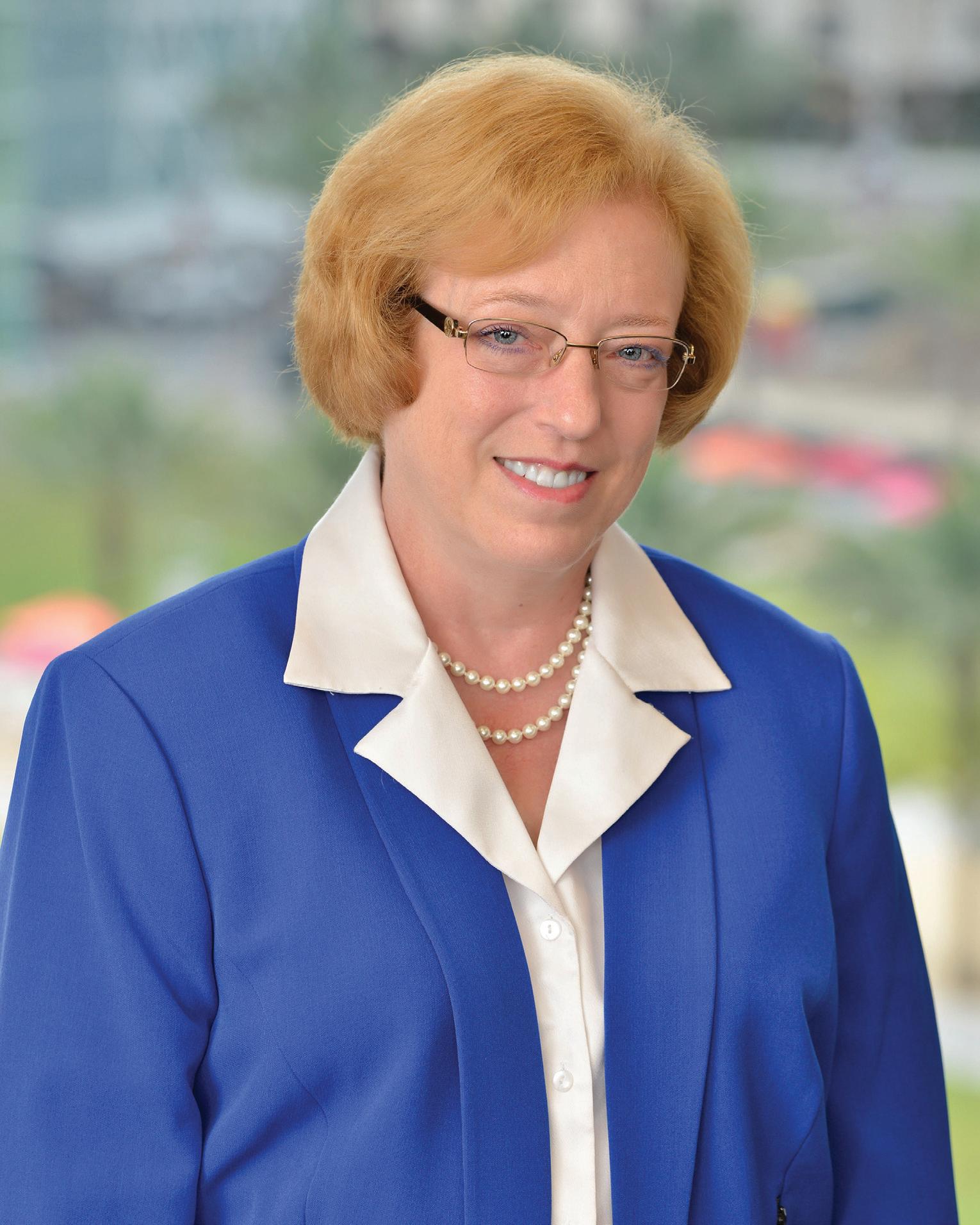
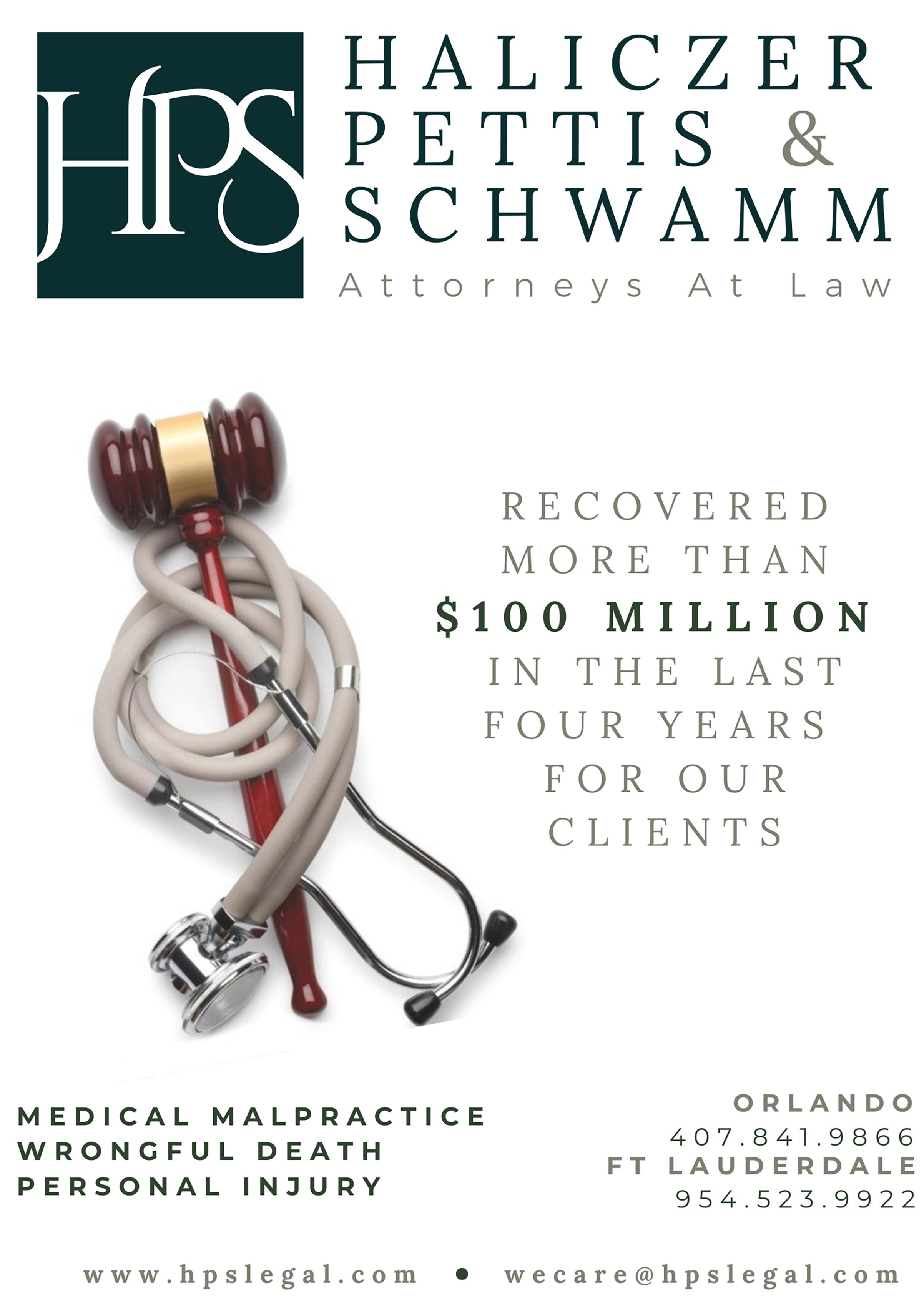

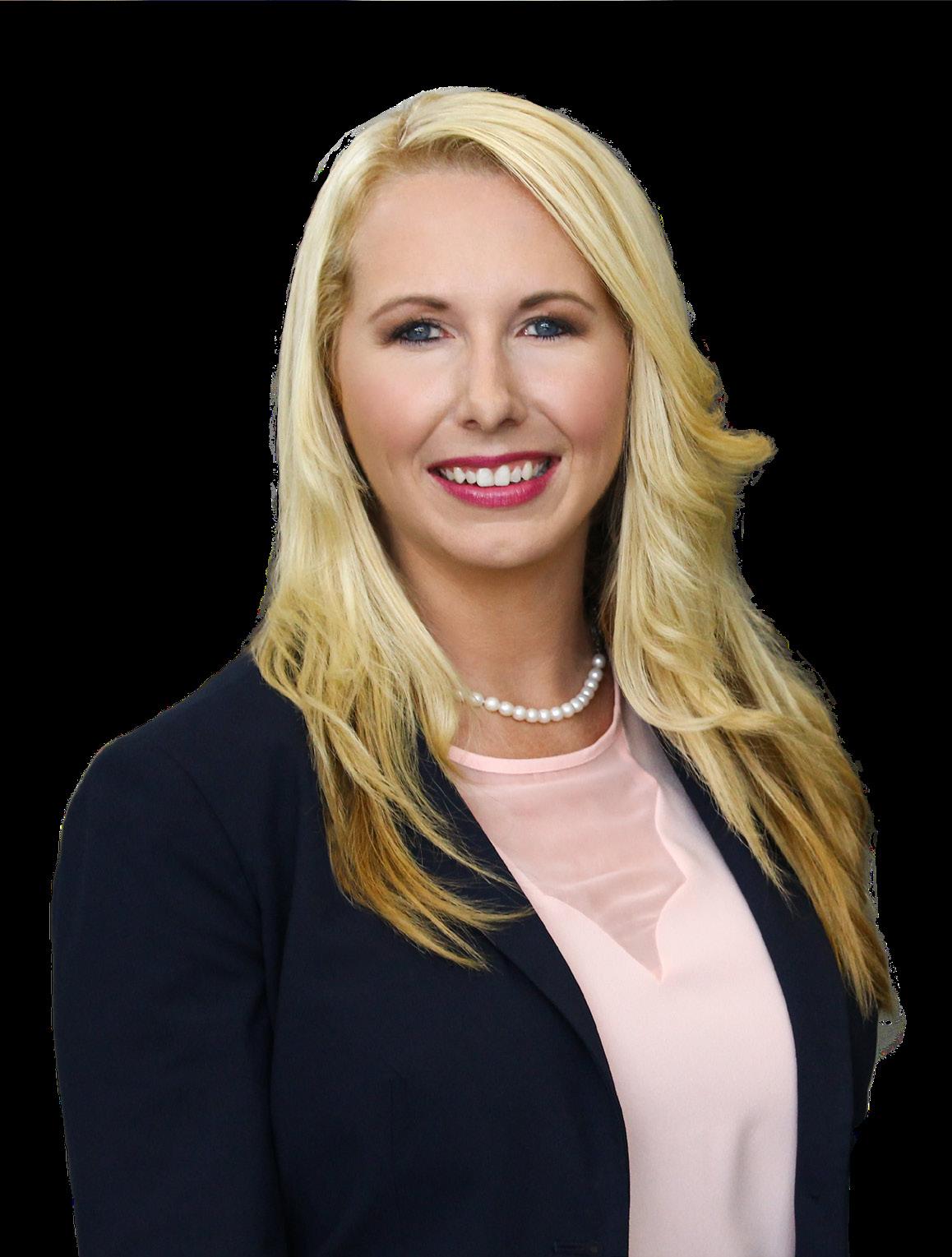
Sean
ADVERTISING DEADLINES
Magazine:
eEdition:
Copy:
4 I The Briefs I MAY 2024
10th
of month prior to publication
20th of month prior to distribution
If the deadline falls on a weekend or holiday, the deadline is the next business day. Publication of advertising herein does not imply any endorsement of any product, service, or opinion advertised. The opinions and conclusions, including legal opinions and conclusions contained herein, are those of the authors and do not reflect official endorsement by the Orange County Bar Association or its officers and directors, unless specifically stated as such. ©2023 Orange County Bar Association. All rights reserved. ISSN 1947-3968 12 I WORKING IT OUT Heather Meglino discusses a healthy work/life balance LETTERS FROM LEADERS 06 I PRESIDENT’S MESSAGE “You’ve changed me forever. And I’ll never forget you.” Amber Davis, Esq. 08 I CLERK’S CORNER 2024 Report to the Citizens of Orange County The Honorable Tiffany Moore Russell, Esq. 10 I CHIEF’S COLUMN Jurors’ Valuable Service The Honorable A. James Craner OCBA OUT & ABOUT 16 I TEACHING TIPS Practical Tips For Managing Office Conflict Paul Pelton, FRP 18 I AWARD SPEECH Beyond Compliance: The True Meaning of Professionalism
Billotte Moses Esq. FROM THE COMMITTEES 20 I FOUNDATION Law Day 5K Michael Andriano 22 I PROFESSIONALISM Health And Fitness In The Legal Profession Timothy Terry, Esq. 24 I PROPERTY Don’t Get Rejected Sidney Dominicci LEGAL AID SOCIETY 26 I WHAT WE DO Judicial Review/Permanency Hearing Sam Williams, Esq. 28 I WHAT WE DO Transition Plan
Sciandra, Esq. SIDEBAR: NEWS / EVENTS / UPDATES 30 I VOLUNTARY BAR
V. Baker, Esq. 32 I YOUNG LAWYERS SECTION
Six weeks prior to publication
Jamie
Staci
Alena
Mendez-Caitlin,
Esq. the Contents
880 N. Orange Ave., Orlando, FL 32801
Phone (407) 422-4551 Fax (321) 430-1558 orangecountybar.org
Legal Aid Society (407) 841-8310
Citizen Dispute (407) 423-5732
Family Law Mediation (407) 423-5732
Lawyer Referral Service (407) 422-4537
Foreclosure Mediation (407) 515-4330
Young Lawyers Section (407) 422-4551
the Briefs
Editor John M. Hunt
Associate Editor Ryan Tindall
Columnists
Alena V. Baker
Sean Mendez-Caitlin
Officers
Amber Davis, President
Arti Hirani, President-Elect
Keshara Cowans, Treasurer
Lisa Guerrero, Secretary
Lauren Reynolds, YLS President
Executive Council
Stephanie Alcalde
Michael Barber
Lori Caldwell Carr
Kate Hollis
Kristopher Kest
Jessica McGinnis
Bruce Mount
Karen Persis, Ex Officio
Alisia Profit
C. Andrew Roy
Brandon Sapp
Jennifer Thomas
Jessica Travis
Executive Director Rob Garay
Advertising & Sponsorship Manager
Ursla Gallagher
Marketing and Communications Manager Reatha Cruz-Johnson
Design Em Agency, emagency.com

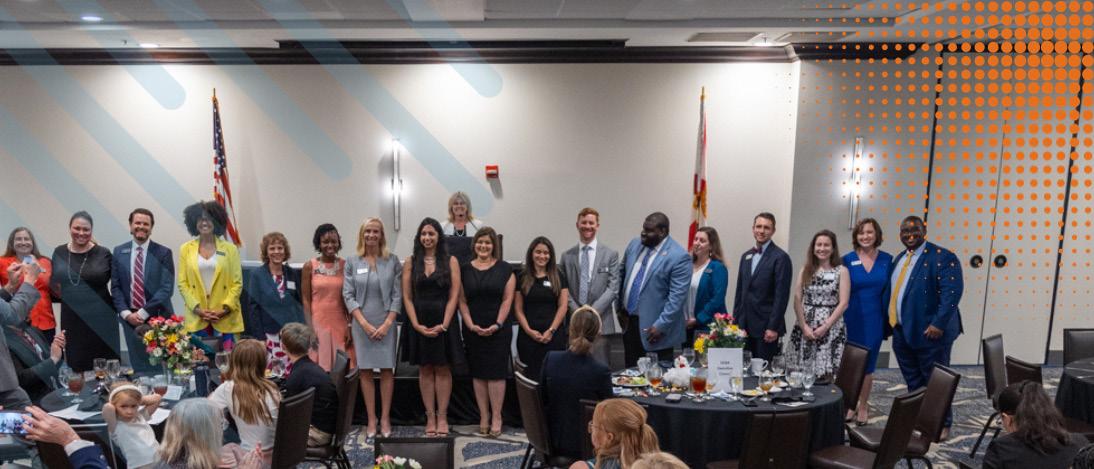
INSTALLATION LUNCHEON
Thursday, May 16 at the Citrus Club 255 S Orange Ave STE 1800, Orlando, FL 32801
Celebrate the installation of the new boards of the Legal Aid Society of Orange County Bar Association, OCBA Foundation, OCBA Paralegal, OCBA YLS, and OCBA Executive Council at our prestigious Installation Luncheon. Join us as we swear in the dedicated individuals who will lead these influential organizations, shaping the future of the legal community in Orange County. Be part of this momentous occasion and witness the commitment, expertise, and vision of our newly appointed leaders as they embark on their transformative journey.
RSVP by Monday, May 13, 2024
Ashley Velez ashleyv@ocbanet.org | orangecountybar.org/page/store RSVPs and cancellations will not be accepted after May 13, 2024.

MAY 2024 VOL.92 NO.4
OCBA MAY LUNCHEON
MORE EVENTS orangecountybar.org/calendar
TITLE SPONSOR
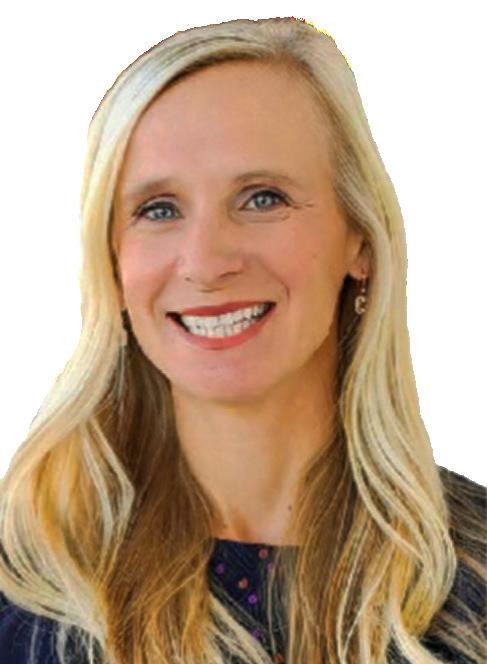
“YOU’VE CHANGED ME FOREVER.
And I’ll never forget you.” – Kiera Cass
As my term as OCBA President comes to a close, I find myself reflecting on a year of accomplishments, challenges, and personal growth. From the outset, my goals were clear: to foster professionalism, promote work-life balance, and prioritize health and wellness within our legal community.
One of the key strategies to achieving these goals was securing luncheon speakers that would touch on each of these topics as well as writing articles in the Briefs that centered around my goals. We have invited experts to share insights at our luncheons on professionalism, stress management, and maintaining a healthy work-life balance. From seasoned attorneys and judges to wellness coaches, these speakers provided valuable advice and inspiration to our members.
This started with our first speaker, Dr. Lorneka Joseph, who spoke to us about personal development, leadership styles, and the importance of mental health especially in a demanding profession like the legal profession. Next, we invited Federal District Court Judge, Skip Dalton, and Federal Magistrate Judge, Daniel Irick, to speak about the importance of professionalism and changes they have seen in this regard post-pandemic. Finally, I wrote about some of the challenges I have experienced over the years as a practicing attorney and shared tips from my some of my favorite books on how to succeed, how to build a rock star team, and how empathy and grit are two of the most important characteristics needed for success.
We also hosted a number of different panel discussions and CLE’s centered around these topics and will have a special session at the Bench Bar Conference that will center around health and wellness. The month of May, Health and Wellness Month, will
come with free yoga, a fitness challenge, and maybe even pickleball!
In addition to advancing my goals as President, we also created a new website, designed an entirely new Briefs layout, obtained 24 new sponsors, hosted 57 events for our members, added 312 new members, handled 1182 new pro bono cases by 542 different OCBA attorneys, donated $7�000 to LAS and $7�000 to the OCBA Foundation, secured the second highest registration for the 5K with 713 participants, presented almost 80 CLE’s, and partnered with new charities like GROW healthy kids.
Navigating the responsibilities of being President has been both a pleasure and a challenge. While it is incredibly rewarding to see the positive impact of our initiatives on our members and the community at large, it hasn’t come without its share of stress. Balancing the demands of this role with the demands of my busy practice and three children has sometimes felt like walking a tightrope, but the support of the OCBA staff, my colleagues at work, and my husband and nanny at home, along with the satisfaction of making a difference, have made it all worthwhile.
As my term comes to an end, I look forward to stepping back and spending more time with my family, on my practice, and on the tennis courts! Serving has been an absolute honor and I am sincerely grateful for this experience, the lessons learned, and the relationships forged during this journey. I’m confident that the OCBA is in good hands and will continue to thrive for years to come.
Thank you for allowing me to be your President.

6 I The Briefs I MAY 2024
PRESIDENT’S MESSAGE
Amber Davis, Esq., is a managing partner at Wolter Van Dyke Davis, PLLC focusing primarily on trademark law and IP litigation. She has been an OCBA member since 2007.
FULFILL YOUR LEGAL AID REQUIREMENT
4 Ways
1. Take Cases as needed by the Legal Aid Society in Family Law, Consumer Law, Housing Law, Immigration Law, Veterans, Sealing and Expunction, or other areas.
2. Be a Guardian ad Litem (GAL) and take cases as needed by the Legal Aid Society in Dependency, Transitions, Appeals, Delinquency, or Child Victim/Witness Cases.
3. Participate in Projects as needed in Bankruptcy, Citizen’s Dispute Settlement, Family Mediation, Community Education, Tax, Teen Court, Teen/Parent Education, Housing Advice Clinics, or others.
4. Contribute Financially. lieu of service and help ensure Legal Aid can provide services to the disadvantaged in our community.
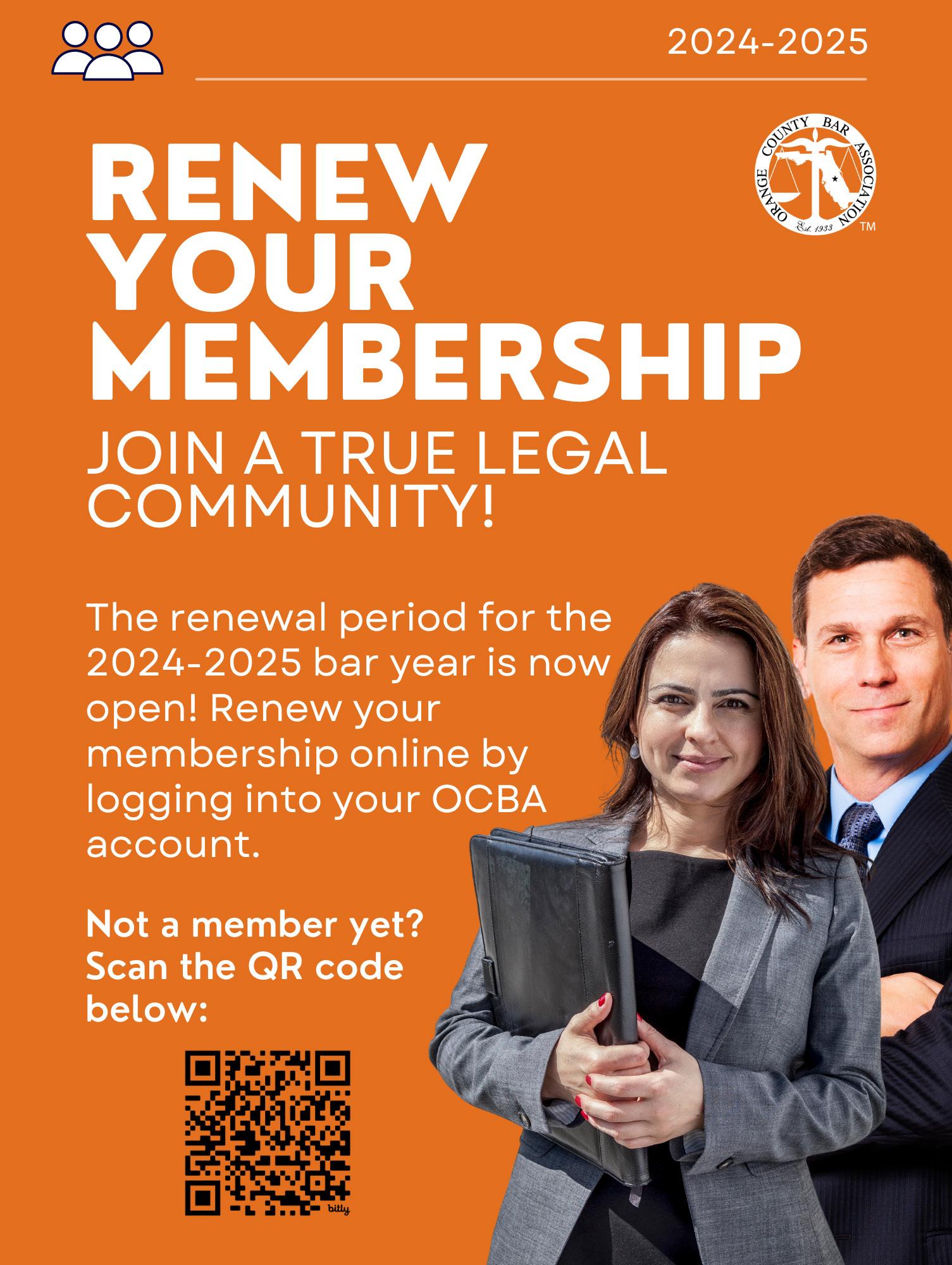

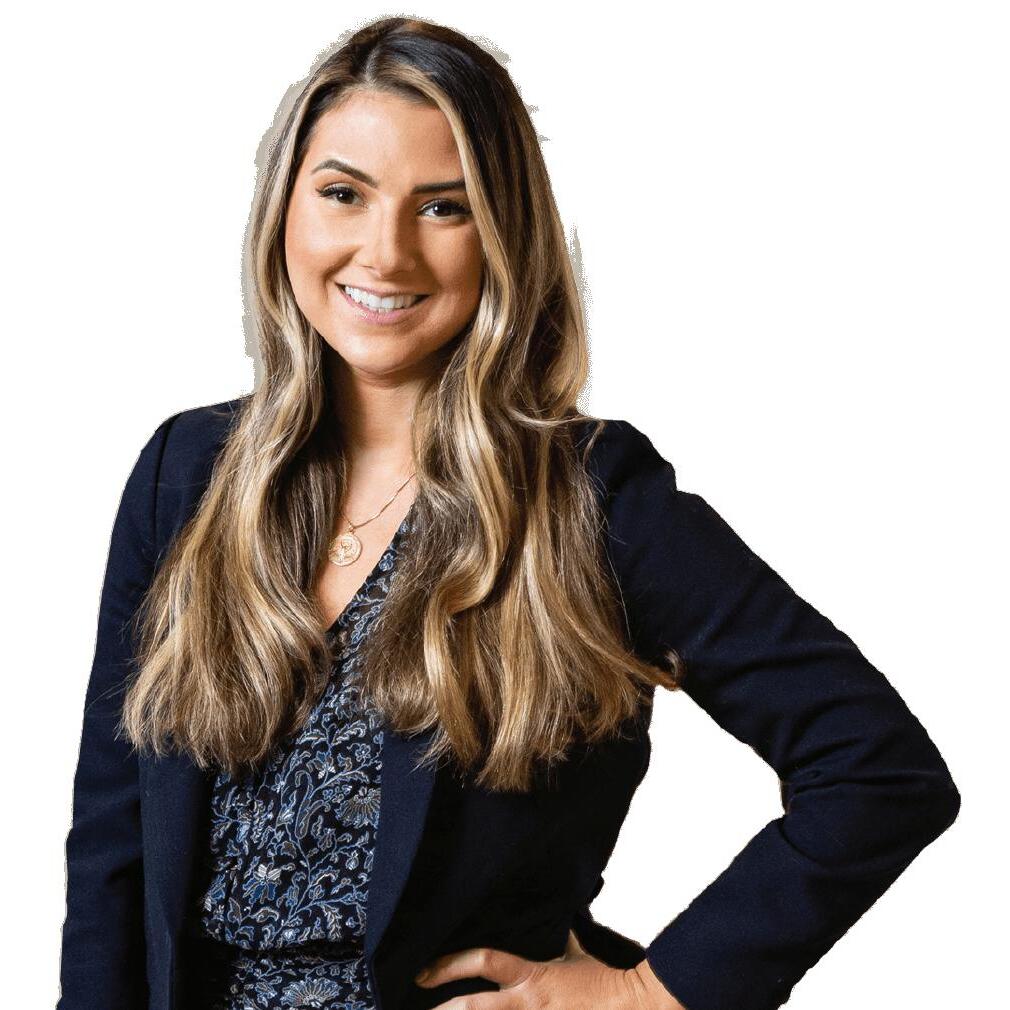

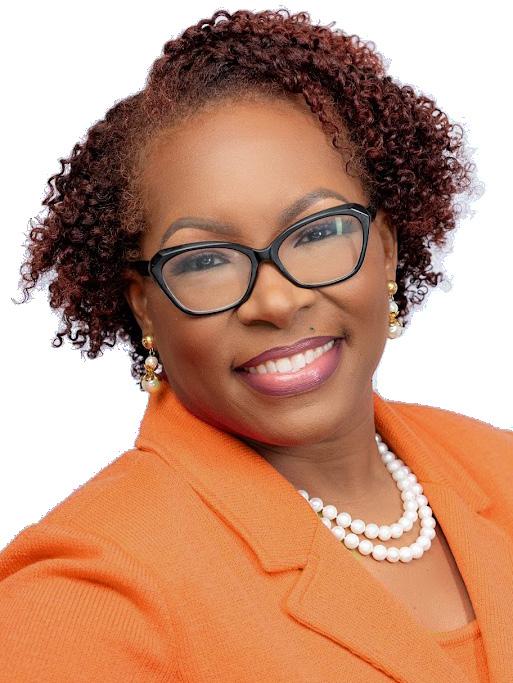
2024 REPORT TO THE CITIZENS OF ORANGE COUNTY
I am pleased to share with you the Orange County Clerk of Courts 2024 Report to the Citizens. I feel each year providing this report is an important part of fulfilling my commitment to make sure my office always remains transparent and provides access to our services with integrity.
I invite you to read through this report to see real examples where my office worked alongside our stakeholders including the Orange County Bar Associations (OCBA) to provide better access to justice for our community and customers.
Examples of this include providing free legal forums & events, being recognized statewide for best practices, and holding community drives where we either raised money or served on a project to make a difference. I’m proud of the hard work and dedication my staff give each year to make an impact like this to serve our community and customers.
The report also includes important data and information on case filings, our financial health, and it outlines our strategic plan which is our roadmap as we continue to evolve to serve our community.
I hope you will take some time to read the 2024 Report to The Citizens and see all we are doing to make it easier for people to do business with my office. You can find our 2024 report on the Clerk’s Office website at www.myorangeclerk.com/annualreport.
Until next time,
 Tiffany Moore Russell Orange County Clerk of Courts
Tiffany Moore Russell Orange County Clerk of Courts
8 I The Briefs I MAY 2024
CLERK’S CORNER
The Honorable Tiffany Moore Russell, Esq., Orange County Clerk of Courts, has been a member of the OCBA since 2004.
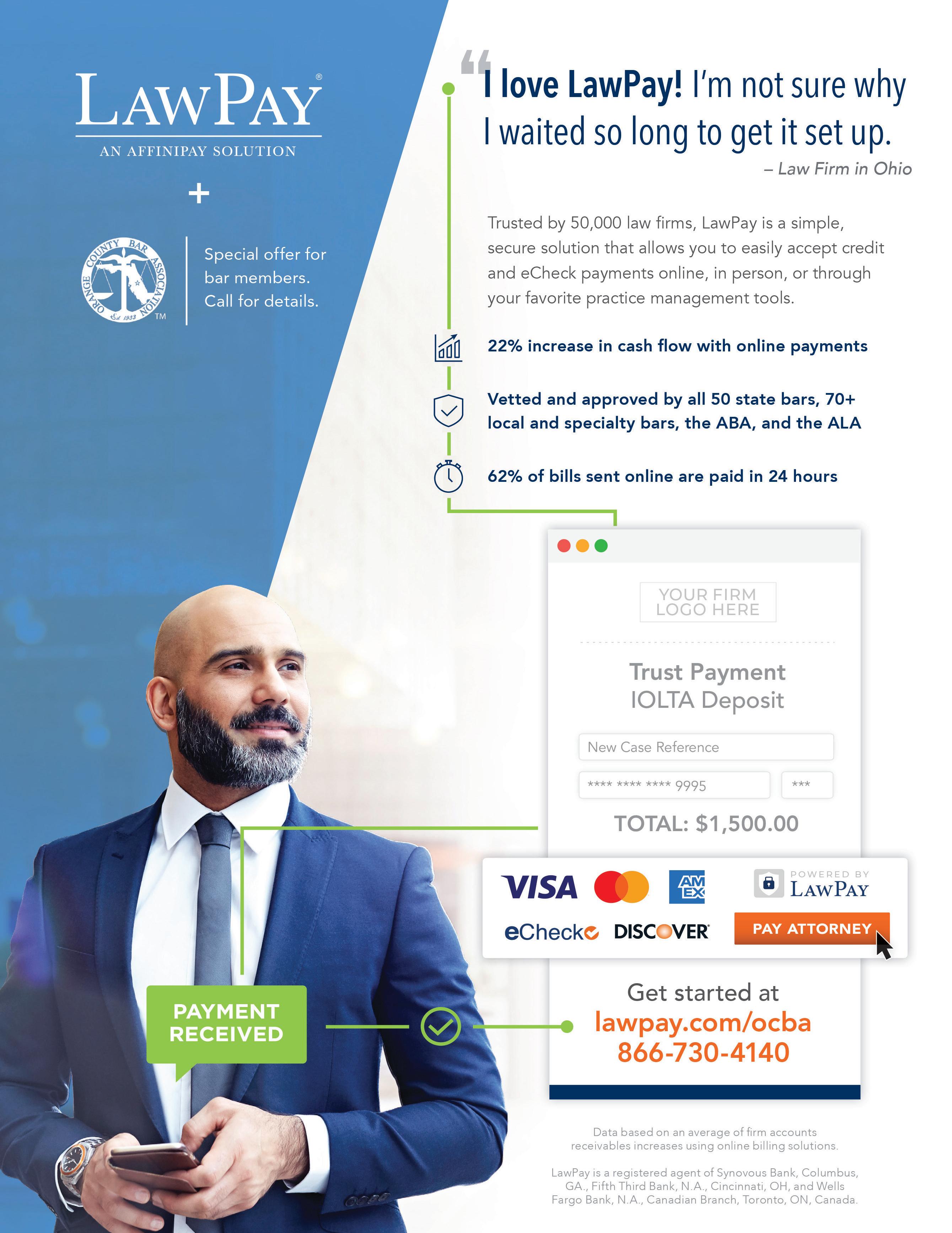
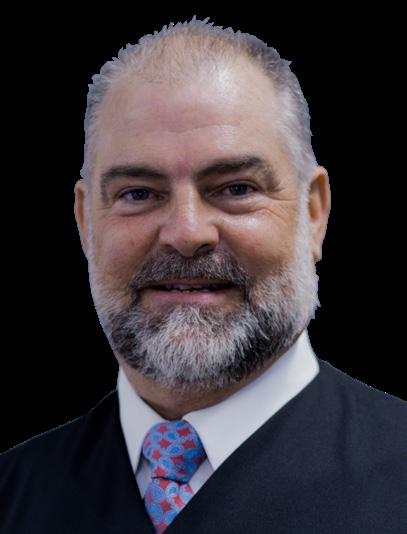
JURORS’ VALUABLE SERVICE
A learned attorney and friend of mine routinely thanked jurors for their service in closing arguments by stating the following:
“There are really three ways that you can participate in your federal, state, and local government: vote, pay taxes, and serve as a juror. And serving as a juror is the only way you can have a truly direct, significant impact on someone’s life, either the plaintiff or the defendant.”
Those words never failed to have an impact on me when I heard them. So much so that today, when I thank jurors for their service, I also share this thought.
The Clerk of Courts manages jury service in all of Florida’s judicial circuits, save for one –ours. In the Ninth, court administration manages jury service, summonsing nearly 140�000 people each year to dispose of hundreds of jury trials. These civil and criminal trials – in both circuit and county courts – span nearly fifty divisions. On Mondays, our busiest day, over 500 jurors routinely report each week to satisfy the need for twelve to fourteen panels, with priority given to circuit criminal divisions first, followed by circuit civil, then county criminal, and finally county civil.
To limit the impact jury service can have on everyone’s life, judges must place daily orders for panels by a mid-afternoon deadline. Judges must also adhere to panel size limits, which allows us to summon just enough jurors to dispose of the cases at hand. On the date of trial, we also encourage judges to call for panels quickly and, per administrative order, release jurors as soon as all judges’ needs for panels have been met, so jurors can return to their normal, busy lives.
Yet while many jurors are happy and proud to serve, there are often mitigating factors that make jury service challenging. Some can’t afford the time off work. Others are caretakers or have small children at home.
Then there are the small business owners who have no choice but to close their businesses while serving. Or lawyers who have to reschedule meetings and hearings. We understand these and the many other difficulties jurors face when called to serve, and that’s why we summon only the number of jurors we actually need and release them as soon as possible.
Once in the courthouse, you’d think that jurors would want to serve on the shortest trial possible. But that hasn’t been my experience. Interestingly, I have found that people are more willing to serve in civil trials, which can last five to ten days, than they are to serve in criminal trials, which typically last one or two. It seems counterintuitive, but a statement made by a woman during jury selection helps shed some light as to why it’s not. When asked if she really wanted to serve as a juror in the trial, she confidently declared, “Yes, I am a Latina and I want my voice heard.” Her statement shifted how every potential juror viewed their service. Up to that point, they were trying to figure out an angle to get off serving. After she spoke, the courtroom went silent and not another person sought to be excused from that point forward. With one sentence, she reframed jury service from being a burden to being an opportunity to participate in our government. I hope her words motivate you as well to respond affirmatively the next time you receive a summons in the mail.
So, thank you again for your service. Truly. As an attorney selecting a jury, hopefully, you will appreciate the thoughtful approach and herculean efforts that went towards getting a panel to your courtroom. And as a juror, hopefully you realize how much we value your time and the sacrifices you make to report to the courthouse. The judiciary appreciates your service!
10 I The Briefs I MAY 2024
The Honorable A. James Craner Circuit Court Judge Ninth Judicial Circuit Court
CHIEF’S COLUMN
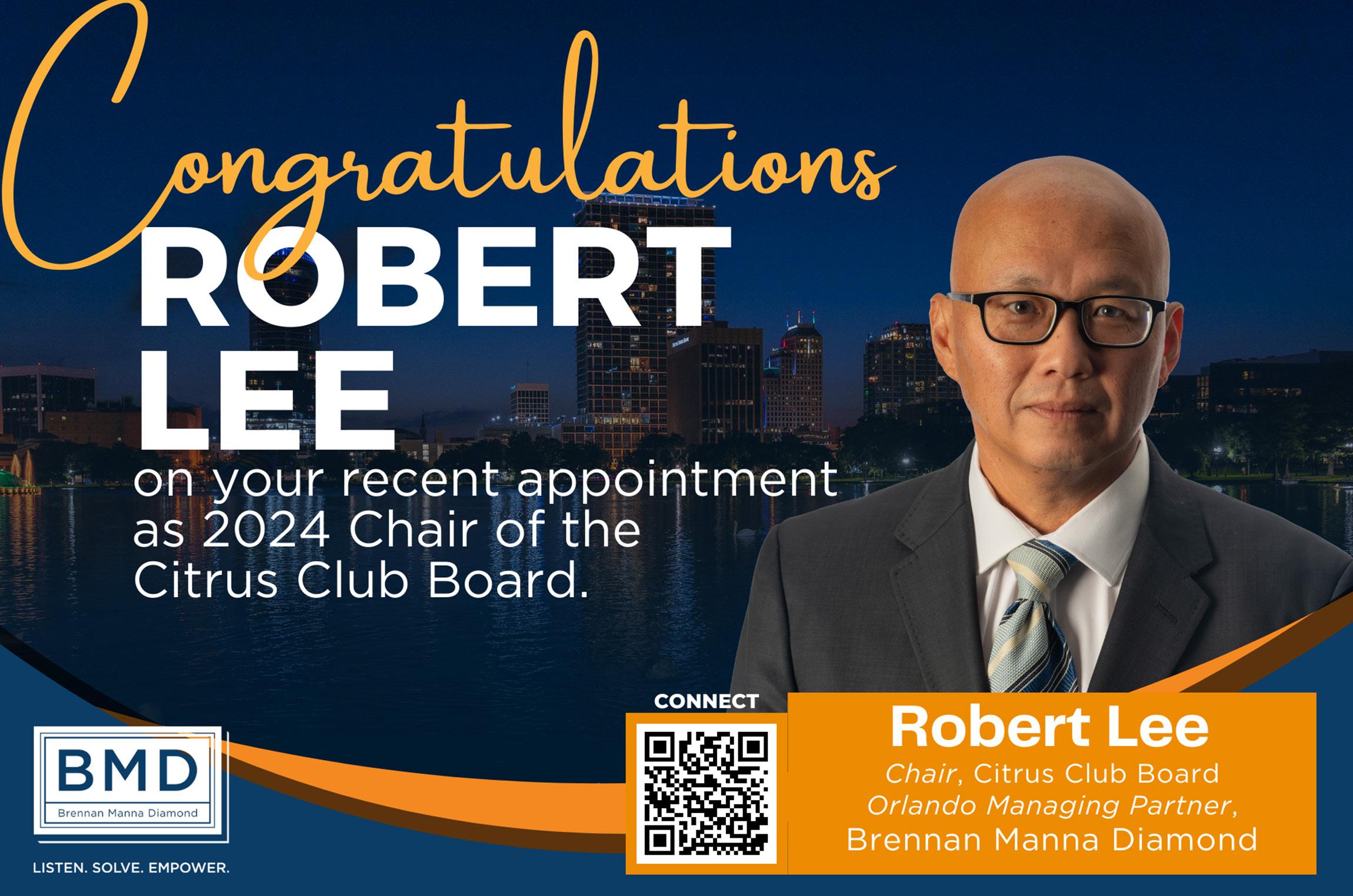
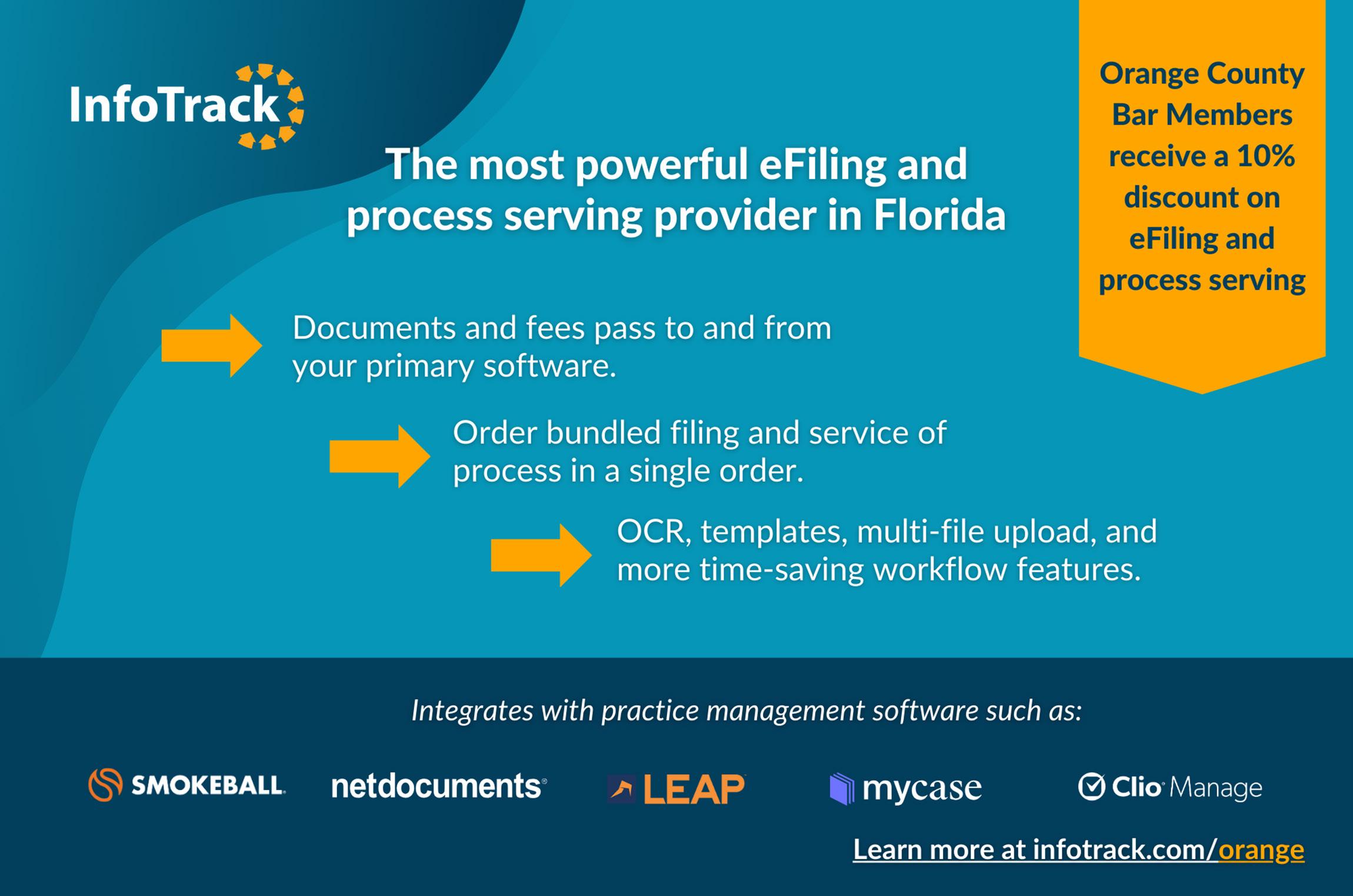
orangecountybar.org I The Briefs I 11
WORKING IT OUT
Heather Meglino discusses a healthy work/life balance
Heather Meglino is the General Counsel of Q1, LLC, where she provides legal counsel to a large portfolio of brands including Once Upon a Coconut, B.C. Rich Guitars, Q-Matics, Q1 Bio, JSC Consulting, 7 Ace Logistics, The 300 Group, iVox Solutions, and PCD. Sean McCormack sat down with Meglino to discuss her approach to health and wellness and how employers can assist their employees in achieving a healthy work/life balance.


12 I The Briefs I MAY 2024
 Meet Heather
Meet Heather

HOW DO YOU BALANCE YOUR WORK AND PERSONAL LIFE?
I balance work and personal life by setting boundaries, prioritizing tasks, and planning ahead for both. Your fitness and wellness activities should be calendared every day just the same as you would a meeting or any other important work item. Everyone’s routine is going to look different, but it is important to find what works for your schedule. Planning your week out is extremely important so you can make sure to have a healthy balance between your work and personal life.
WHAT ACTIVITIES DO YOU DO TO STAY HEALTHY?
I like to lift weights, run, trail run, compete in hybrid or obstacle course racing, go on rucks, and play sports. I move my body every single day for at least 30 minutes, make sleep a priority, take daily supplements, and look at ingredients in the food I purchase.
WHAT TECHNOLOGY DO YOU USE TO TRACK YOUR HEALTH AND WELLNESS?
• Garmin Connect app: Having a tracker to track your fitness, steps, calories, etc. is a must have! When you see the effort level it takes to burn calories it helps you to
make healthier choices throughout the day. I also love analyzing all the data the trackers provide.
• All Trails: check out trails nearby including difficulty, length, etc. The GPS feature saved me when I accidentally went off trail!
WHAT ARE YOUR FAVORITE HEALTHY SNACKS?
• Protein bars: these are just the easiest to always have on you so you are getting enough protein throughout the day and so you do not select something unhealthy out of convenience.
• Chomps jerky: zero sugar! I am always looking for items that taste good that have zero or little sugar.
WHAT ARE YOUR FAVORITE WELLNESS RESOURCES?
• Podcasts! The Running Public, Race Brain, RMR Training, and The Hard Way with Joe Desena.
• Audible: Beyond Training, Dirty Genes, Endure, and The Spartan Way.
ALONG THE LINES OF HEALTH AND WELLNESS, WHAT INSPIRES YOU?
I am always inspired by other people who push themselves beyond what we think is achievable and by the stories of athletes that have disabilities that display resilience, determination, and the human spirit’s indomitable nature.
ADVICE THAT WORKS!!
If you have a busy week ahead, meal prep or pick up healthy premade meals for that week.
If you have several evening events, workout in the morning before work or at lunch time.
Multitask to add in fitness during other activities: For example, watch tv but only if you are on a treadmill or other stationary equipment or doing exercises like crunches, air squats, wall sits during or every commercial break (if applicable). Stand and move around at your children’s sports, assist the coaches, or stand and move around more instead of sitting.
Add some workout equipment to your home or office to help you get in a quick workout when you have a small amount of time. For example, bands, dumbbells, yoga mat, yoga ball, etc.
Take a telephone call or meeting with a colleague, friend, or family while on a walk, treadmill, or other stationary equipment.
Attend an event or happy hour for half the time so you can get more sleep or work out afterwards.
Eat before or bring your own food if you know the food is going to be unhealthy and tempting.
If you need to catch up with a friend instead of happy hour or dinner, walk around a lake or go on a hike together.
Evaluate any tasks you can get off your plate in reason so that you can free up a little more time for exercise and self-care. For examples, numerous trips to grocery store versus grocery deliver or bulk purchasing, carpooling child pick up/drop off, outsourcing cleaning or lawncare, etc.
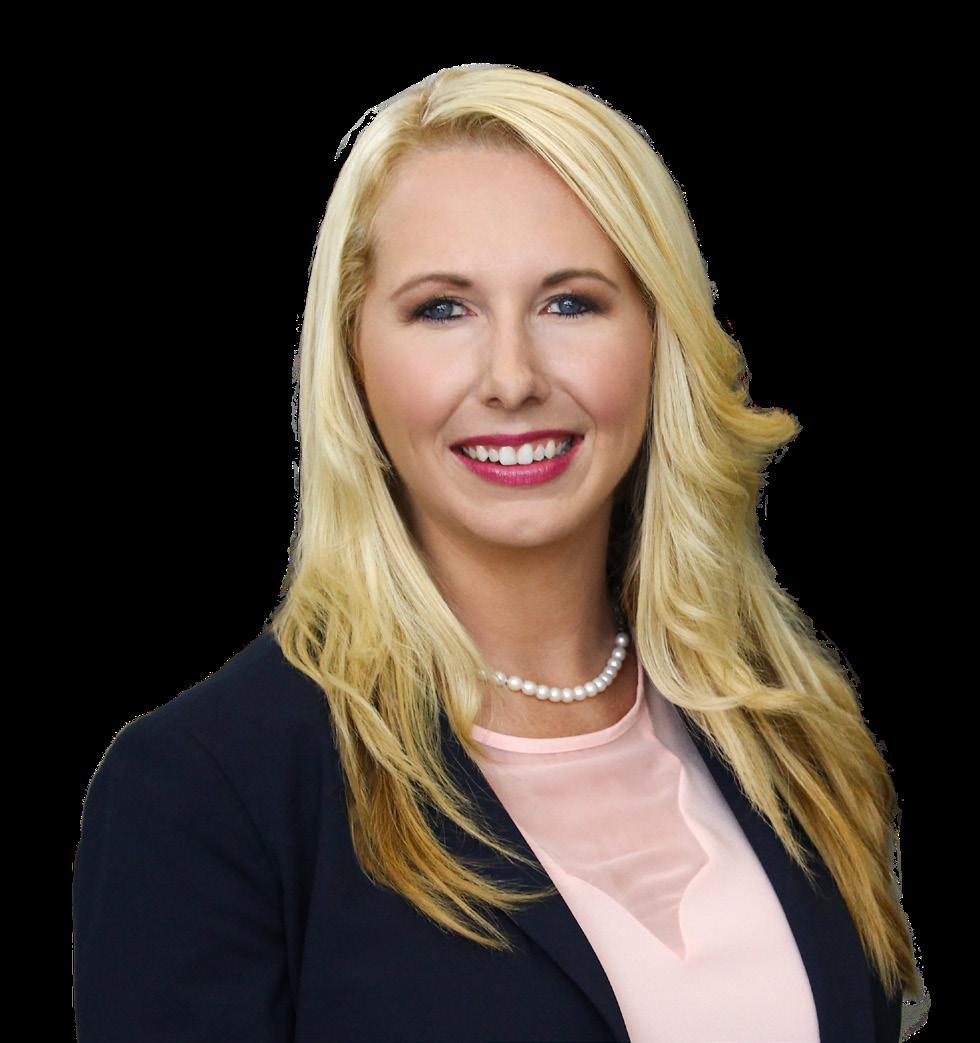

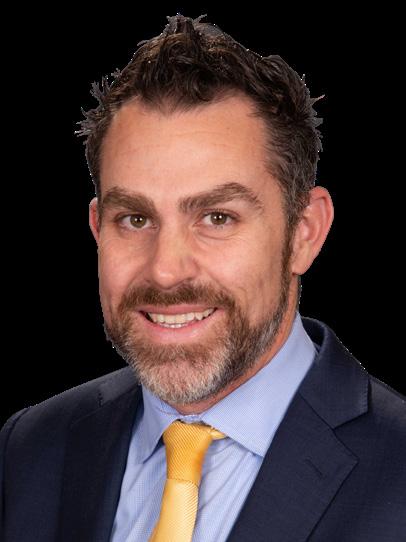
Workplace Wellness
WHAT DOES WELLNESS MEAN FOR LAWYERS?
For lawyers, wellness encompasses not just physical health but also mental health, mental toughness, emotional resilience, and work-life balance. Wellness can include regular exercise, taking care of doctor’s appointments/checkups, stress management, maintaining healthy boundaries, managing workload, dedication to faith, etc.
WHY IS WORKPLACE WELLBEING SO IMPORTANT?
Workplace welling being is important because it impacts absenteeism and improves overall happiness and productivity. Employees who feel supported and valued are more engaged and motivated overall, which leads to better performance. It can also help you retain good employees and attract top talent. Happy employees are more likely to be creative and innovative and drive or-

WHAT FACTORS CONTRIBUTE TO HEALTH CHALLENGES IN THE LEGAL PROFESSION?
Pressure to perform/win.
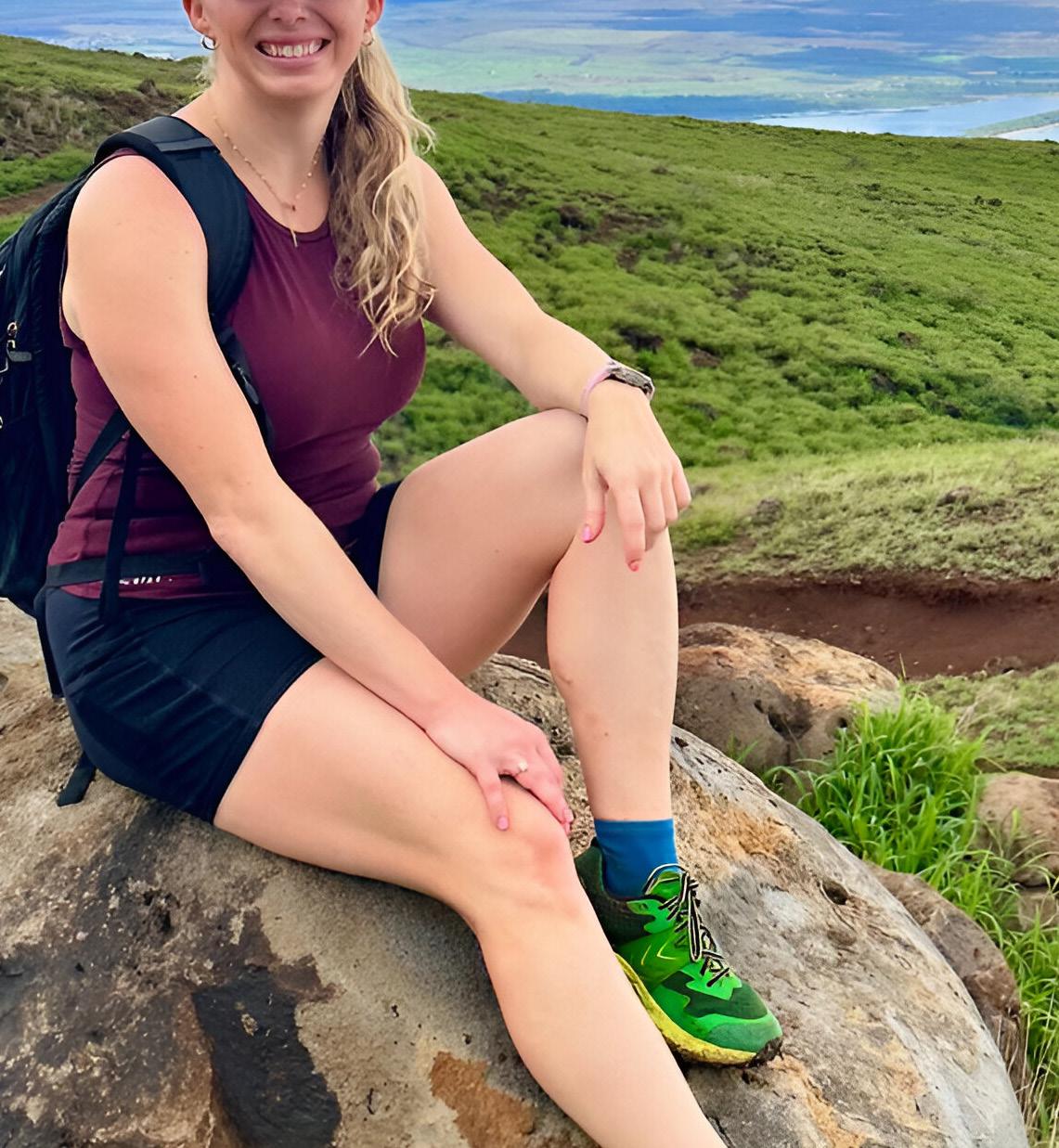
WHAT CAN BE DONE TO RECOGNIZE THEM?
• Observation of employees, work environment, and job demands.

• Encourage boundaries to prevent burnout.
• Implement surveys or request feedback regularly.
• Provide training to leadership, managers, and employees on mental health topics – burnout, stress management, mental health awareness, etc.
WHAT ARE SOME EXAMPLES OF WELLNESS PROGRAMS?
• Charity walk/run events as a company.
• Employee incentive challenges like calorie or steps challenges.
• After-work outings to various classes like yoga, self-defense, CrossFit, etc.
WHAT CAN ATTORNEYS DO TO FIND JOY AND HEALTH IN THEIR LIVES?
• Find your purpose.
• Set boundaries.
• Prioritize self-care.
• Seek support from peers, mentors, and resources.
• Engage in activities that bring you joy and fulfillment.
I have witnessed that very small incremental changes have a large impact on health and wellness. I love helping people change their lifestyle to incorporate fitness and helping businesses create a healthier environment for their employees. It is a true passion of mine.
WORKING IT OUT
Sean McCormack, Esq. is a shareholder at Colling Gilbert Wright who practices in the areas of Worker’s Compensation and Personal Injury. He has been a member of the OCBA since 2011.
14 I The Briefs
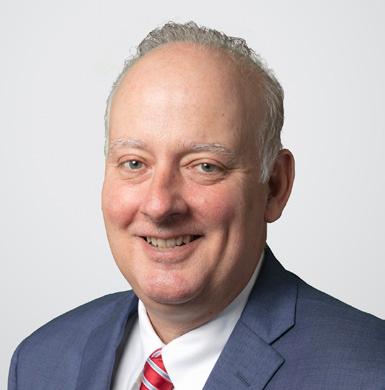

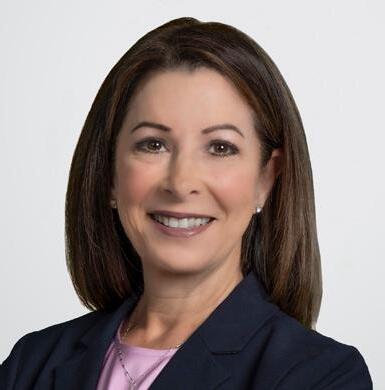
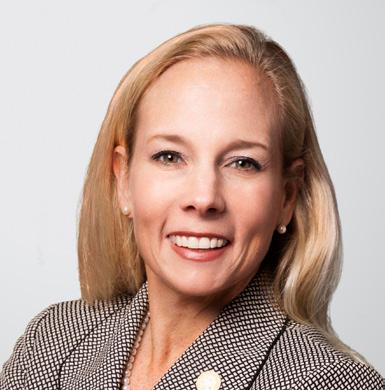
Copyright © 2024 Holland & Knight LLP All Rights Reserved Certified Circuit Court Mediators www.hklaw.com Orlando, FL | 407.425.8500 Effective. Insightful. Experienced. * Also a Certified Appellate Court Mediator David E. Cannella Board Certified – Business Litigation david.cannella@hklaw.com Suzanne E. Gilbert suzanne.gilbert@hklaw.com Jamie Billotte Moses* Board Certified – Appellate Practice jamie.moses@hklaw.com

PAUL PELTON, FRP
is a Senior Litigation Paralegal at Paul, Knopf, Bigger, PLLC in Winter Park, FL and has been a member of the OCBA since 2015, serving in various capacities at the OCBA, The Florida Bar, and Valencia College Paralegal Program Advisory Panel.
PRACTICAL TIPS FOR MANAGING OFFICE CONFLICT
At one time or another, we have all had the experience of dealing with conflicts within the workplace. The names are different, but the issues are the same: Sally almost never comes into work on time so everyone is waiting for her to start the meeting; Bill pushes his work off on Mary but has time for chitchat; Jim hardly ever gets his assignment completed on time so the project is stalled; Mike was promoted to management and he creates unnecessary work for subordinates; Mrs. Smith has no respect for boundaries and asks that you work over the weekend because she waited until Friday afternoon at 4�30 to decide on which documents she would be using for the 8�00 Hearing on Monday morning.
1. American Psychological Association; 2023 Work in America Survey - Workplaces as engines of psychological health and well-being; https:// www.apa.org/pubs/reports/ work-in-america/2023workplace-health-well-being; Accessed 2/2/24
2. Ronquillo, Y. Ellis, VL Toney-Butler, TJ Conflict Management In StatPearls Publishing; 2024 Jan. https:// www.ncbi.nlm.nih.gov/books/ NBK470432/ Accessed 2/2/24
3. Samantha Lane Perfas. Don’t Tell Bob in Accounting He’s a Raging Jerk (even if he is). August 18, 2023. https:// hls.harvard.edu/today/howto-manage-office-conflict/. Accessed 2/2/24
4. How to Handle Conflict in the Workplace; UC San Diego Employee Relations. https:// blink.ucsd.edu/HR/supervising/ conflict/handle.html Last updated 1/5/18. Accessed 2/2/24
5. Id.
6. James 1:19; King James Version (KJV); Public Domain
7. Id.
8. American Psychological Association; 2023 Work in America Survey - Workplaces as engines of psychological health and well-being; https:// www.apa.org/pubs/reports/ work-in-america/2023workplace-health-well-being; Accessed 2/2/24
According to the 2023 Work in America Survey conducted by the American Psychological Association, psychological well-being is a very high priority for workers. Unfortunately, 19% (one out of five) respondents in the survey stated that their workplace is very or somewhat toxic. Furthermore, 58% of those who reported a toxic workplace also reported that they intend to look for a new job at a different company or organization in the next year, compared with only 27% of those who did not report a toxic workplace. Nearly one quarter (22%) of workers surveyed reported having experienced or been afraid of experiencing harm to their mental health at work. In 2023, 22%
of workers experienced harassment at work in the preceding 12 months. 19% reported having been bullied at work.1
Conflict is the disagreement or difference of opinions between or among individuals that can be potentially harmful to any organization. In the workplace setting it often involves personal agendas, insights, or goals versus the agendas, insights, or goals of the group or team. Conflict management seeks to resolve the disagreement or conflict with positive outcomes that satisfy all individuals involved or is beneficial to the group.2
Clearly, there is no workplace that is free of conflict. Most conflicts in the
office are the result of different personalities, unresolved problems from the past, feelings of competition or resentment, poor communication skills, and uncertainty about roles or responsibilities. How we approach the issue is important to foster a healthy workplace where we feel heard, appreciated, and valued. Even if you’re tempted to call a co-worker a “royal, raging jerk,” or worse, you can recognize that doing so is unlikely to help.3
Here are five negative resolution strategies:
• Avoidance: Avoiding the party or not responding which causes friction;
• Competition: Taking the position that one must win at all costs;
• Accommodation: Allowing the situation to continue without address and resolution which leads to resentment, bitterness, and a toxic environment;
• No collaboration: Not working together harms the company/firm;
• No compromise: Neither party compromises; everyone loses.
Handling conflict in the office environment can be tricky but, if approached correctly, positive results can be achieved for all con-
16 I The Briefs I MAY 2024
TEACHING TIPS: PARALEGAL SECTION
cerned. The following are some practical tips on conflict resolution:
• Acknowledge that a conflict exists and define the problem so that you can understand the issues which need to be discussed.
• Arrange a time to talk with the other person(s) involved in the conflict and meet on neutral ground where each person feels safe and where no one has an unfair advantage; no one should have power or influence over the other party. It’s also wise to arrange to meet in a place where you won’t be interrupted.4
• Focus on behavior and events, not on personalities. Instead of saying, “When you do…” say “When this happens…” Describe a specific instance or event instead of generalizing.5 Taking this a step further, I believe it’s important to share with the other party how his or her behavior makes you feel as a person by saying “When this happens, it makes me feel… [unappreciated] [belittled] [offended] [disrespected]. These are feelings most people can understand because they have experienced it themselves.
• Allow the other person(s) to speak. All should be able to express views or perceptions without feeling threatened.
• Listen without interrupting. God gave us two ears and one mouth for a reason; we should be “…quick to listen and slow to speak.”6
• Repeat back the response from the other person to make sure you understand what was said. Ask questions to clarify your understanding.7
• Agree on a solution going forward and articulate that solution. Say something such as “You agree that [if our meeting is supposed to start at 8�30 a.m.] you will be in the conference room by 8�30 a.m.” This way, both parties understand and verbalize the solution.
• Follow through on the solution going forward.
• Recognize and reinforce good behavior privately. Saying something like “Hey, Mrs. Smith: Thank you for getting this project to me on Thursday afternoon so I could get it done before the weekend!” Positive reinforcement goes a long way in fostering good working relationships and forward progress.
• Follow up the conversation with an email. In some situations, it’s a good idea to outline the discussion that took place; it provides traceable documentation regarding the issues at hand and the solutions that have been agreed upon. Even though the process of conflict management may seem scary or difficult
to tackle, there are benefits to be recognized with good conflict management, a few of which are:
• Builds strong working relationships;
• Maintains morale which helps prevent disruption in productivity;
• Achieve goals when parties work together rather than focusing on conflict;
• Reduces stress which improves mental and physical well-being;
• Provides insight and enhances problem solving; and
• Improves employee retention when staff members feel valued and respected. The employer plays a vital role in resolving conflicts within the office as well. Employer engagement can calm the situation down, restore order, and help the parties to work together to achieve the company’s missional goals. Here are some strategies employers can put in place to manage conflict within the office:
• First and foremost, let employees know that they matter. When employers demonstrate that they care about, value, and respect their employees, employees are more motivated to work through the conflict rather than let the problem fester or just quit. Unfortunately, almost 30% of workers believe that they do not matter to their employer.8
• Make it easier for employees to raise concerns about issues with co-workers and colleagues without fear of consequences.
• Establish a dispute resolution initiative and allow employees who have a conflict to engage in a fair mediation process through their supervisor, manager, or human resources professional.
• Focus on the problem rather than the personalities involved. Even though each party has taken a side in the dispute, focusing on the problem itself and how to solve it turns the discussion away from blame and negative emotions.
• Recognize and compliment progress. Not only does this show that you care about ongoing resolution of the problem, but it demonstrates that the persons involved in the conflict matter – he or she has real value - to you as the employer. Addressing workplace conflicts head-on, and early – handling the problem before it festers and builds walls between people - is the best method to fostering a better working environment for both employees and employers. Respectful communication between and among co-workers, colleagues, superiors, subordinates, and owners/employers is key to resolving conflict and making the office a great and productive place to work.
orangecountybar.org I The Briefs I 17
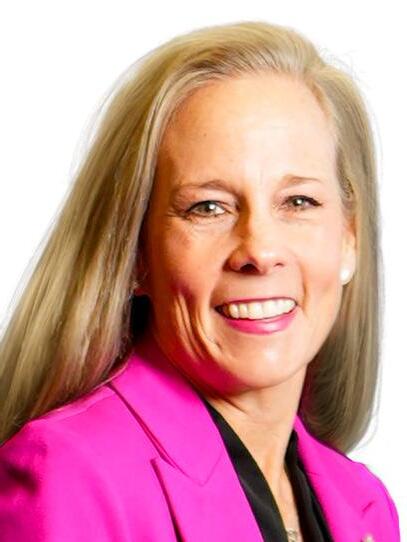
BEYOND COMPLIANCE
The true meaning of professionalism in the legal field.
The practice of law is called a profession for a reason. It’s not just a job. Of course, there are the educational requirements, the bar exam, and the rules of procedure and court room policies we must follow. But, these are just the minimum requirements of lawyering. What makes the practice of law a profession is everything else. What makes one “professional” is what they do beyond interacting with clients, opposing counsel, and judges. It is what one does when the clients, opposing counsel, and the judges aren’t watching that matters.
It’s Alisia Adamson, Sasha Watson Sankey, and Conti Moore Smith, who own their own firms, are raising babies, serve in the bar, and take up every cause in the African American community because they see their roles as so much more than their personal well-being.
It’s Ava Doppelt, one of the most accomplished practitioners in our community, bringing a new person to CFAWL or the OCBA every month because she believes community and relationships are what make the practice of law manageable.
The Florida Bar recently introduced a mandatory two-hour Professionalism CLE in response the Florida Supreme Court’s removal of the diversity, equity, and inclusion CLE requirement.
This is a CLE that all Florida lawyers are required to take regardless of their current CLE status. The CLE focuses on professionalism and, although much of what is said we’ve heard before, two nuggets resonated with me:
1. Professionalism is the expectation that lawyers will do more than simply comply with the rules of professional conduct.
2. Professionalism is character, competence, civility, and commitment.
I’d like to think I am receiving this award because,
in addition to being a courteous and professional lawyer, I have been a volunteer, a leader, a mentor, an advocate, and a role model. But I am not alone. To me, what makes this a profession and what constitutes professionalism are the following examples:
It’s Dottie McMichen receiving the President’s Pro Bono Service Award for the 9th Circuit at the age of 76.
It’s Bill Vose, Ryan Williams, Keshara Cowans, and Lisa Gong Guerrero serving for years on the OCBA’s Executive Council when doing so would not result in any business development, but because they believed public sector lawyers needed a voice in the OCBA.
It’s Cindy Schmidt refusing to serve as the OCBA Foundation President during my term as OCBA President unless I agreed her Vice President would be a diverse candidate who might not otherwise have been asked to serve.
It’s Chad Barr living every day of his life sharing the spoils of his hard-earned success giving back to the boys’ home and university which believed in him and allowed him to become the man he is.
It’s Sarah Pape, Caryn Green, and Zander Clem who turned their children’s unexpected diagnoses into opportunities to raise awareness and funding for treatment and an eventual cure.
It’s Camara Williams pointing out issues of race
18 I The Briefs I MAY 2024 AWARD SPEECH
Jamie Billotte Moses Esq.
William Trickel, Jr., Professionalism Award
and privilege in a direct and informed manner such that people listen, reflect, and hopefully try to change.
It’s Bill Ponall whose very livelihood depends on the appellate judges and courts he practices before handling an appeal to challenge the appointment of a Florida Supreme Court Justice who was not yet legally qualified to serve.
It’s all the judges who, before they were on the bench and every day since, never say no when asked to speak, lead, teach, attend, or champion a cause because they know public service is so much more than just what one does from 9-5.
It’s Larry Smith who had every reason to be angry and lash out, but instead found a voice after the Pulse Massacre to help so many of us deal with the senseless tragedy.
It’s Lisa Franchina, Joyce Fuller, and Musette Hood being unapologetic advocates for animals and using their legal acumen to fight for animal rights because they can’t fight for themselves.
It’s Wynne McFarlin, Christina Russo Walters, and Liz McCausland, year after year, arranging for hundreds of children and teens to receive gifts for the holidays when they otherwise would not. Similarly, it’s Bill Umansky, Amir Ladan, David Big-
ney, Simon Wiseman, and Harvey Cohen tapping into their immense professional and social networks to collect money and toys for Baby DJ so that no child wakes up Christmas morning thinking Santa forgot them.
It’s David Varet joining and becoming an active CFAWL member because he admittedly had no idea what women lawyers faced and wanted to understand for himself rather than it be filtered through memes and the internet.
It’s Melody and Brendan Lynch supporting and promoting the Arts in our community because we are all better people when dance, music, and the arts are front and center in our lives.
It’s Emerson Thompson who never says no when asked to speak or attend an event, even though he has earned the right to do so, because he appreciates and understands what he represents to so many.
It’s Christina Alvarez’s and Jessica Thomas’s real talk about motherhood, being a wife, owning their own practices, and relying on others to get through every week, which allows other mothers to see they are not alone in their struggles.
It’s Catherine Davey, Carrie Eisnaugle, and Ryan and Judi Hayes who turned their children’s ge-



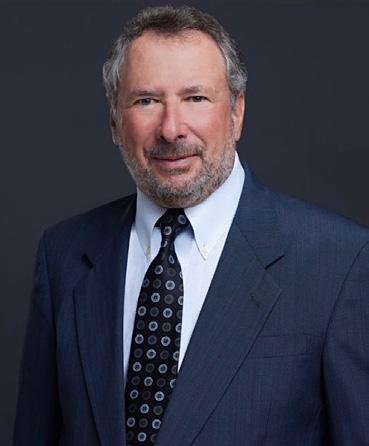
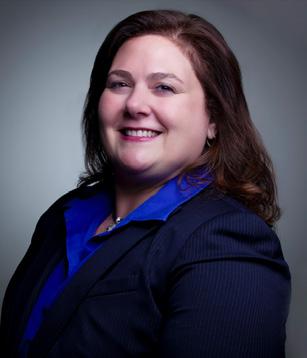



netic awesomeness into opportunities for education and growth.
I could go on for hours. I hope you see my point. All of these people mentioned, and many, many more, are not just good and professional lawyers. That’s the minimum. They are examples of professionalism beyond their practices. They have put their lives and their well-being second to causes far greater than their occupations and, for that, they have made lawyering a profession and not just a way to make a living.
I hope that during my thirty years of practice I have inspired others to be
more than just professional and courteous. To give more than they are asked. To do more than just the minimum. To be more than is expected. My mother always asked me what was the minimum required of me for a test, a charitable event, a contest, and then she strongly suggested I do more. Two to four canned goods for the food drive always meant four. A one to two paragraph essay always meant two paragraphs. Extra credit was not optional. I would submit that professionalism is no different. Don’t just do the minimum, always go above and beyond.
orangecountybar.org I The Briefs I 19
Andy Hament
Mediator & Arbitrator
To view individual bios and to schedule a mediation or arbitration, please visit: adrsource.com or call
888.741.2224 Solving the world’s problems…one case at a time
Deborah Moskowitz
Mediator & Arbitrator
Bob Henry Mediator
WAYS TO CONNECT
Learn: orangecountybar.org/ page/OCBA-Foundation
Donate: orangecountybar.org/ donations/donate.asp?id=23148
Follow Orange County Bar Association Foundation ocba_foundation
OFFICERS
President Michael V. Andriano
Vice President
Kafi Kennedy Swanson
Treasurer Keshara Cowens
Secretary
Rachel Mattie
Immediate Past President
Onchantho Am
BOARD OF DIRECTORS
Honorable Jeanette Bigney
Honorable Andrew L. Cameron
Euribiades Cerrud, II
Trinetta Fisher
Honorable Steve Jewett
Honorable Leticia Marques
Alisia Adamson Profit
Eloisa Pino
Andrew Reath
Brett Renton
Rebecca Smith-Hameroff Kenway Wong
LAW DAY 5K
OCBA Foundation honors law students and promotes community support.
The Foundation awarded the following four students with its Law School Book Award: Yolie Larus, Benjamin Vo, Anoop Desai (Barry University School of Law), and Jephte Gauthier (FAMU College of Law). The students were honored at the January Orange County Bar Association luncheon. Additionally, several Board Members participated in the OCBA Law Day 5k Run/Walk on Saturday, March 2nd. The 5k is a fantastic event that supports the free civil legal aid programs and directly

we do without your support, and we encourage you to donate. Your donation ultimately supports the citizens that we serve here in Orange County.
benefits the Legal Aid Society of the Orange County Bar Association and the Foundation. The Foundation thanks all the registrants and participants for continuing to support us and, in turn, the Orange County community at large. Looking for another way to support the Foundation? The Foundation’s new website is up and running which includes a donation link. There are options for a onetime donation and to set up a reoccurring donation. The Foundation cannot continue to do the great work that
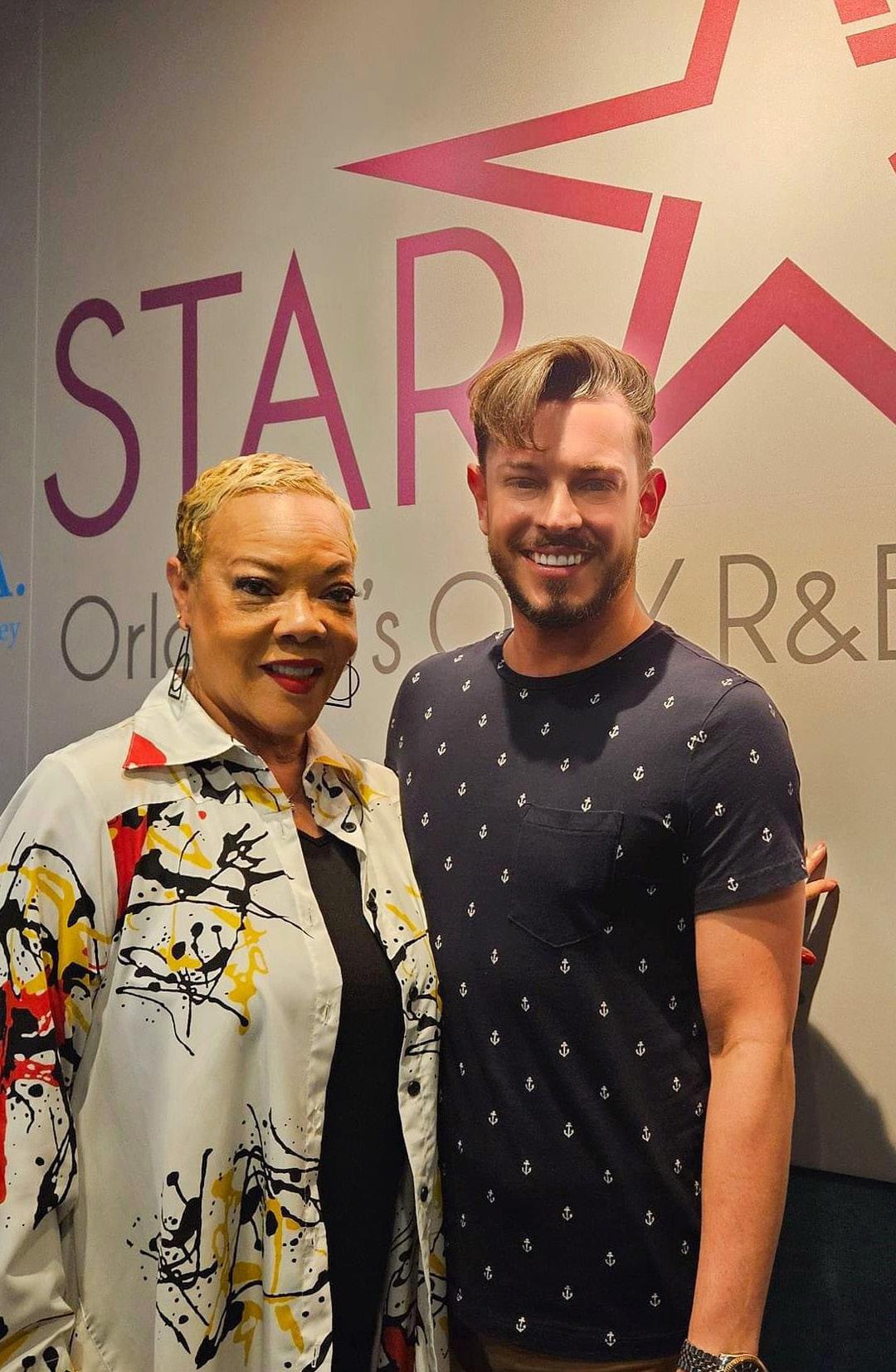
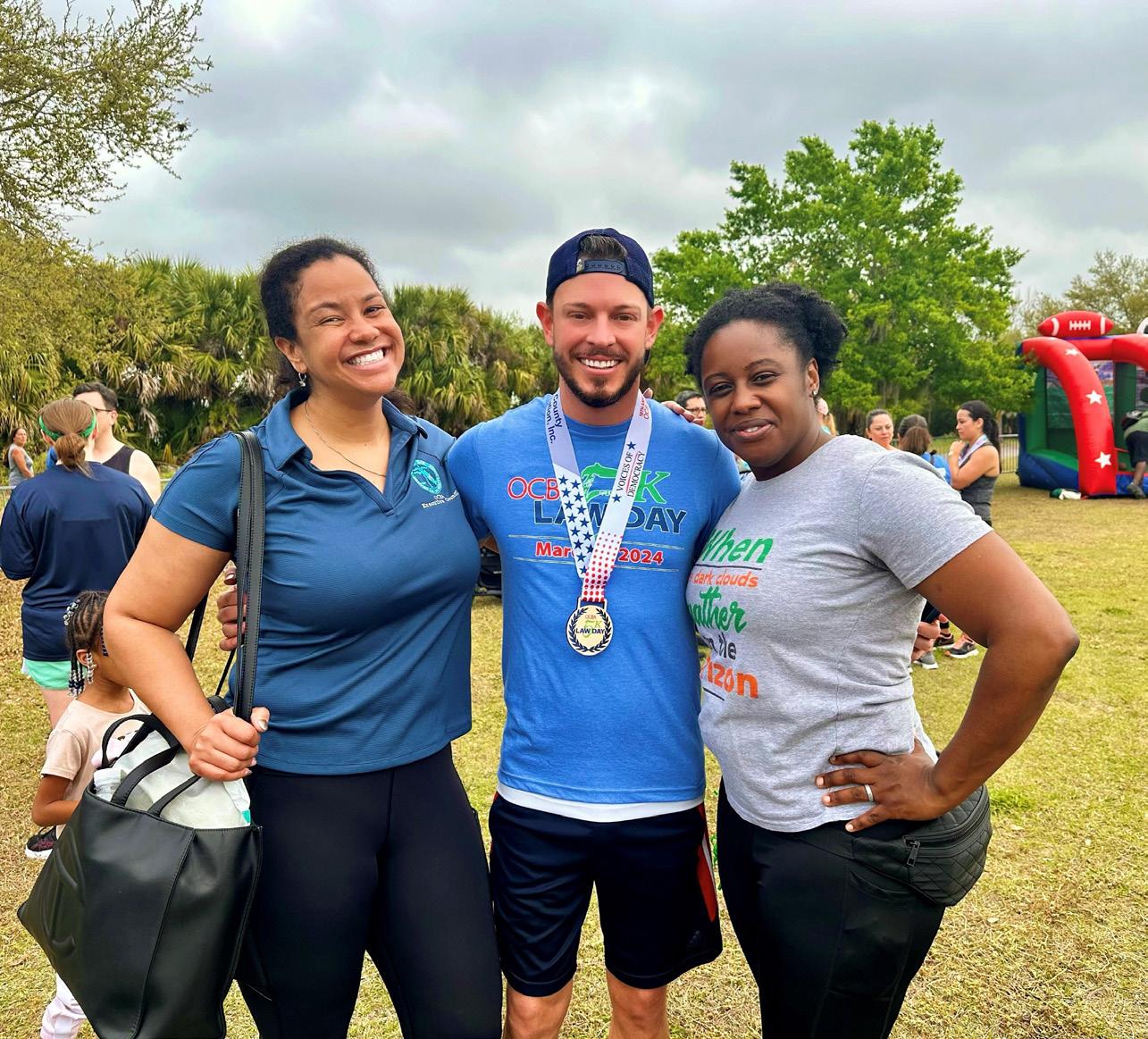
20 I The Briefs I MAY 2024 FOUNDATION OUTREACH
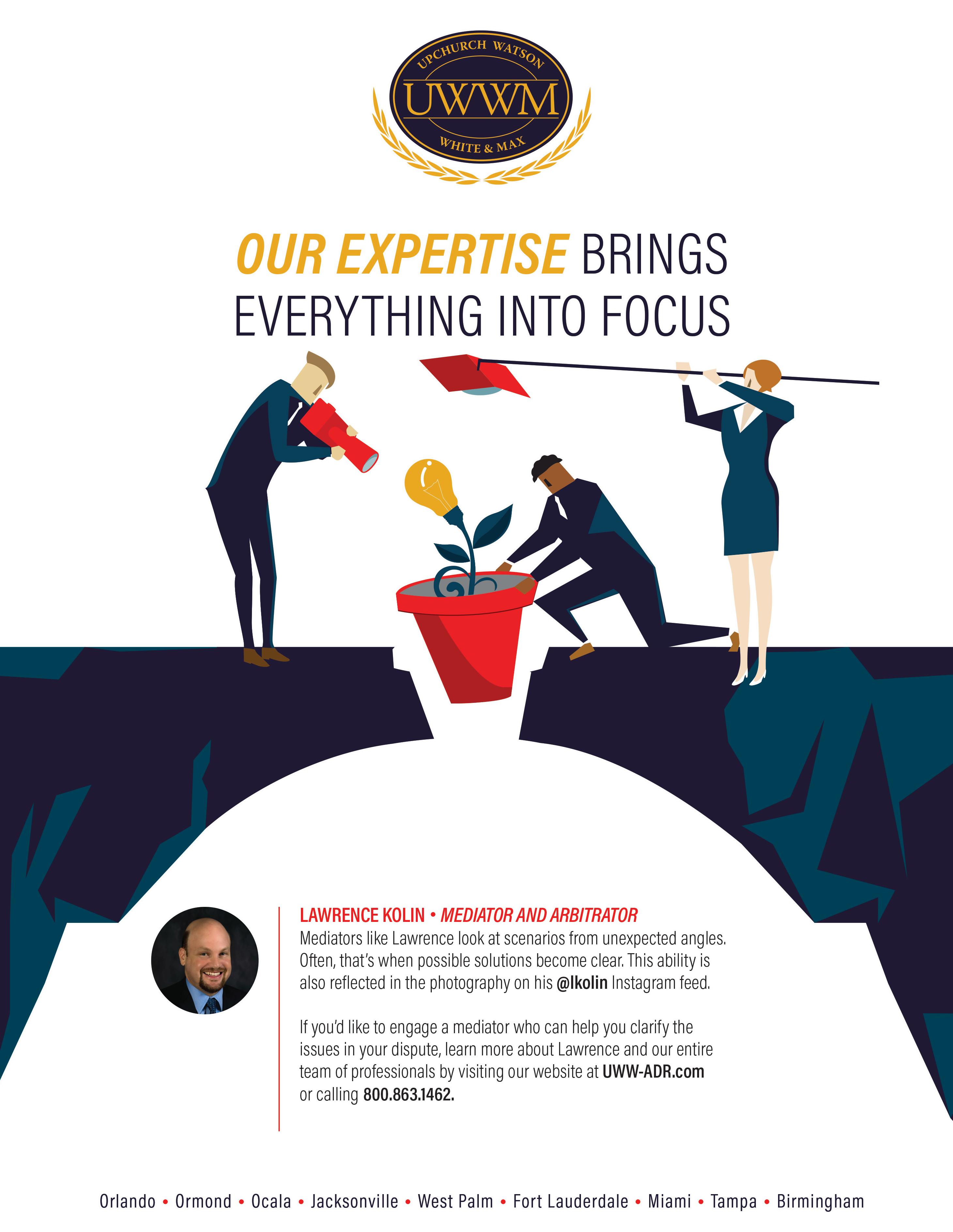
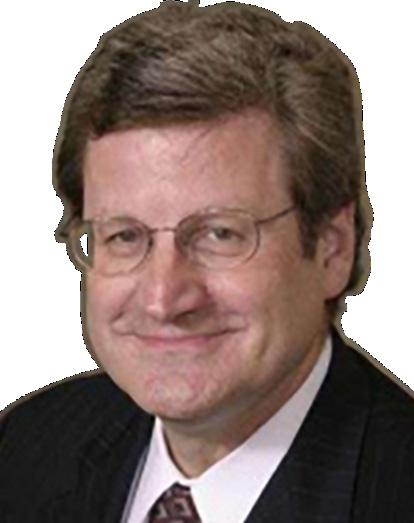
HEALTH AND FITNESS IN THE LEGAL PROFESSION
Do you find yourself wishing for a nap like a twoyear old after lunch? Is your law practice the main thing between you and that nap? You might be able to help yourself with that problem with a little exercise. You don’t need to be a gym rat to be healthier. If you want to improve your health, running or walking could be a good start. You do not have to pay a gym membership fee or get expensive equipment.
Many Central Florida lawyers took part in the 5K run in downtown Orlando. Congratulations to all of our local attorneys who have spent so many hours training to run in long-distance races. Running is a popular sport, but not everybody wants to, or is able to run long distances. If the thought of running a mile is demotivating, studies by Science Direct have shown that running just 5 to 10 minutes a day at an average pace can add years to your life. It may also reduce the risk of chronic illnesses such as heart attacks, strokes, and other com-

mon diseases. Walkers can also reap significant health benefits without spending hours in a gym.
Harvard Medical School
– Harvard Health Publishing (December, 2023) reported five surprising benefits of walking. Dr. Thomas Frieden, former director of the Centers for Disease Control and Prevention, has touted walking as “the closest thing we have to a wonder drug.” Walking promotes a host of benefits, but five that may surprise you are: (1) Walking counteracts the effects of weight-promoting genes. In a study of obesity-promoting genes in over 12�000 people, the effects of those genes were cut in half. (2) Walking helps tame a sweet tooth – a 15-minute walk can curb a craving for chocolate. (3) Walking reduces the risk of developing breast cancer. The American Cancer Society study found that women who walked
seven or more hours a week had a lower risk of breast cancer than those who walked three hours or fewer per week. (4) Walking eases joint pain. Several studies showed that walking reduces arthritis-related pain and protects joints – especially the knees and hips, which are most susceptible to osteoarthritis. (5) Walking boosts immune function and can help protect you during cold and flu season. To learn more about additional benefits of walking, check out Walking for Health, a Special Health Report from Harvard Medical School. Many people today spend a great deal of time working from their home office. A significant number of those people tend to sit and work more hours per day than they would otherwise routinely have spent working from an office setting. Does spending hours at a time drafting and revising documents sound familiar? Does sitting hunched over a computer keyboard for countless hours at a stretch sound familiar? Over time, just working while sitting for hours can lead to, or be a major contributor to a myriad of health-related problems, including brain fog, writer’s block, as well as physical problems,
PROFESSIONALISM COMMITTEE
22 I The Briefs I MAY 2024
Timothy Terry, Esq., of Timothy W. Terry, Attorney at Law, is a solo practitioner who practices in the areas of family law, criminal defense, and personal injury. He has been an OCBA member since 1987.
one of which could be blood clots in the legs. Researchers have found a leisurely way to lessen the effects of inactivity. The solution: 100 steps once every hour.
When working from home, a quick and easy way to accomplish the 100 steps is to get up every hour and take a walk around the outside of your house just one time. If you’re thinking that won’t work because it’s too rainy, too hot, or there are too many icky bugs, you can create an indoor path with just one walk through your home while counting your steps. From then on, you know the route you need to take inside of your residence to use up your steps. According to the National Blood Clot Alliance, sitting too long, especially with legs crossed, increases the chances of blood clots forming in legs. The solution: get up and take frequent walks.
Words, written or spoken, are a lawyer’s stock in trade. Taking a walk outside is rejuvenating – even if it’s nothing more than a walk around your residence once every hour. Giving your brain and the rest of your body a break away from a computer screen will help to increase your productivity. Hourly breaks decrease stress and boost energy levels. The result is a boost in brain power and improvement in your ability to write comprehensive documents in less time. It will help elimi-
nate having to push through tiredness and brain fog while crafting your documents. If you engage in cardio activities, like running and walking, you might retain most of your cognitive functions. The logic behind this is that when we exercise, there is an increase in the brain’s gray matter, an essential tissue that affects everything you do. When this gray matter increases, we can protect our brain better and enhance its functions.
The benefits of walking and running extend beyond the physical ones – a gift for the mind. Taking a stroll is like a gentle massage for worries. Stress and anxiety can melt away, leaving you feeling lighter and more at ease, like a reset button for the mind. Our brains get sharper, which helps us to think clearly and focus better. The sum of benefits makes all exercise a miracle drug, starting with walking!
When you run or walk in local parks or your neighborhood, you might meet new people and make new friends. Humans need high quality social connectedness for a healthy mind. Social connectedness is the quality of relationships people have that makes them feel valued, loved and supported. When we are connected with other people, whether it is socially or through employment, we have healthier minds and make better choices. More importantly for lawyers is that
New Members
REGULAR AND GOVERNMENT ATTORNEY
Daniela C. Alvarado
Melissa Dean
Kate Dowling Dukes
Chelsey Estes
Lisa Figueroa
Lena Fucile
Hillary Hazeltine
Rose Hernandez
Jesse Harold Larsen
Jacob Scott Mayer
Xanquila Mckinnon, Esq.
Christopher Mark O’Connor
Carlos A. Otero
Walter Roberts
Jacob Samuel Slotin
Hannah Waddell
Bryan Eugene Wilson
AFFILIATE
Sophia G. Marcano
LAW STUDENT
Taisha Decossard
Maria Delgado Cerna
Jeremiah I. Garnett
Jasmine Harmon Olga Larus
walking boosts our communication skills. Walking helps us talk, listen, and understand better. Teamwork? Walking has that covered too. If we stroll with pals or take a group hike with co-workers, we learn to cooperate and support each other.
Harvard Health has found that people who meditate regularly have lower levels of anxiety, depression, stress and pain. Many runners and walkers practice mindfulness, so running and walking can be meditative.
Finally, at the end of the day, getting a good night’s sleep is essential for health. It is the quality of sleep that is important, not sleeping long hours. Good quality sleep means that you fall
Emily Mizner
Nicholas James Oropeza
Kristin Vitale Rahim
Ariane Williams
asleep easily and do not wake up regularly during the night. Factors like stress and anxiety can affect the quality of sleep; however, running and walking are believed to enhance sleep quality. Clinical psychologist Shelby Harris, who specializes in behavioral sleep medicine, found that exercise improves our overall sleep quality and helps with insomnia. Just 20 to 30 minutes of cardio exercise a day can help our sleep and keep us more energized during the day.
In closing, think about this: You want what you are writing or saying to have a positive impact on the readers or listeners and having a healthy mind and body can help you achieve that goal. Thank God for helping us understand.
orangecountybar.org I The Briefs I 23

Sidney Dominicci is a May 2024 graduate of Barry University, Dwayne O. Andreas School of Law in Orlando, Florida. Sidney served as the President and de facto President of the Barry Law Chapter of the Real Property, Probate, and Trust Law Section of the Florida Bar during her second and third years of law school.
DON’T GET REJECTED
Deeds and Other Recording Instruments Affecting Real Property.
This article will provide a legislative update regarding the recent change to section 695�26, Florida Statutes, which requires witnesses to recording instruments affecting interest in title or real property to disclose their post office address.1
Florida Deeds
Legislative Purpose
called on to testify for the purpose of confirming that a deed was signed by the grantor on the date specified or to otherwise testify to its authenticity.
1. § 695.26(1)(c), Fla. Stat. (2023).
2. § 689.01(1), Fla. Stat. (2023).
3. § 695.26(1)(c), Fla. Stat. (2023).
4. § 695.26(1), Fla. Stat. (2023).
5. See Wright v. Blocker, 144 Fla. 428, 429-30 (Fla. 1940); Moore v. Smith-Snagg, 793 So. 2d 1000 (Fla. 5th DCA 2001); McCoy v. Love, 382 So. 2d 647 (Fla. 1979); Zurstrassen v. Stonier, 786 So. 2d 65 (Fla. 4th DCA 2001).
6. § 695.01(1), Fla. Stat. (2023).
7. See § 678.302, Fla. Stat. (2023).
In Florida, real property may be conveyed only by a written instrument signed in the presence of two subscribing witnesses.2 Effective January 1, 2024, the amendment to section 695�26, Florida Statutes, now requires witnesses to document affecting interest in title or real property to indicate their post office address on the document.3 Section 695�26 applies to “instruments by which the title to real property or any interest therein is conveyed, assigned, encumbered, or otherwise disposed of.”4 This clearly includes but is certainly not limited to deeds, mortgages, restrictive covenants, and easements. The effect of the amendment is such that recording offices for all sixty-seven Florida counties will be required to reject documents that do not contain the post office addresses for the two subscribing witnesses.
Florida Statutes are amended as needed to reflect the concerns and changing needs of Florida residents. Presumably, the purpose of the Legislature’s change to section 695�26 is to lessen the rise of instances of real estate fraud in Florida, where vacation properties and vacant properties are often targeted, by ensuring that witnesses to deeds and other documents affecting the ownership of real estate can be readily contacted by way of the mailing address provided. The idea is that the additional requirement of addresses for witnesses will aid in properly identifying the witnesses during the transfer of property, particularly in deed fraud and forgery cases.5
The change to the law may serve as a useful vehicle in cases such as the aforementioned where a witness to a deed or other document perhaps now may be contacted easier if
Unfortunately, the Legislature’s decision to use the words “post office address” may create confusion among laypersons and practitioners alike as the term post office address may be open to more than one interpretation. At first glance, one may understand the phrase “post office address” to correspond to a post office box. It goes without saying that not everyone who will witness a deed or other document affecting real property will have a post office box address. Others may construe “post office address” to mean a physical home address.
Witnesses who may not want to disclose their physical home address on a deed or other recording instrument affecting real property, thus making their home address public record, may be troubled with this change to the law and wish to indicate a post office box address upon signing a deed or other document in-
24 I The Briefs I MAY 2024 PROPERTY COMMITTEE
stead, if they have one. Attorneys who are sensitive to home address disclosure issues may suggest or direct their legal staff serving as witnesses to utilize the physical address of the law office where the deed or other document is being signed so as to circumvent disclosure concerns with the statute and still comply with Florida law.
In Practice
It is crucial to bear in mind the requirements of the amendment to ensure that recording instruments are not rejected by the Official Records divisions of Florida counties.
Consider the following: Seller goes to ABC Title and signs a deed conveying his interest in 123 Main Street to Buyer 1 (“B1”) at 12�00 p.m. and collects the proceeds of the sale; then Seller goes to XYZ Title and signs a deed conveying his interest to the same property to Buyer 2 (“B2”) at 2�00 p.m. and collects the proceeds of the sale; then ABC Title records the deed to B1 without witness addresses; then XYZ Title properly records the deed to B2 at 2�00 p.m.
Who owns the property?
Under section 695�01(1), Florida Statutes, a notice statute, a subsequent purchaser of an interest has
the priority interest if the later purchaser is a bona fide purchaser (“BFP”).6 A BFP for value cannot have constructive, actual, or inquiry notice.7 Thus, the theoretical (and sometimes literal) race to the courthouse to record deeds can be an outcome determinative time in ascertaining one’s property interest because recording puts the world on notice, constructively, of the conveyance and is a factor in concluding whether one is a BFP.
Turning back to B1 and B2’s dilemma, B1 had the chance to provide notice of the conveyance to B2 by properly recording the deed immediately. Because ABC Title did not properly include the addresses of the witnesses on the deed, the document was rejected, and no constructive notice was given to B2. Assuming that B2 did not have actual or inquiry notice of the conveyance Seller made to B1, B2 is therefore a subsequent purchaser for value without notice as it stands to reason that the conveyance to B1 was ineffectual and B2 is therefore the owner of the property.
B1 and B2’s circumstances evidence the importance of keeping informed about updates to the Florida statutes. Recording a deed that ultimately
gets rejected by the recording office will be deemed insufficient to put others on notice of the prior interest.
County-Specific Consensus
The Official Records divisions for the following counties have confirmed that either a witness’s physical address or a post office box address will be accepted for recording into the official records:
1. Orange; 2. Osceola; 3. Polk; 4. Lake; 5. Seminole; 6. Volusia; 7. Pinellas; and 8. Hillsborough.
The general consensus among these counties seems to be that “just a mailing address” will suffice to comply with the statute, giving a recording office no reason to reject the deed or other recorded instrument on the grounds of the technicality arising from the amendment. It is likely that the other fifty-nine Florida counties have adopted the same interpreta-
tion; however, it would be wise to contact the specific recording office in which you seek to record to verify their interpretation of the term “post office address.”
Conclusion
In conclusion, persons recording deeds and other recording instruments affecting interest in or title to real property must now include addresses for the subscribing witnesses to avoid rejection of the document by a recording office. Rejected deeds and other recording instruments will be ineffective to provide constructive notice. Grantors, grantees, and practitioners alike should be aware of the additional requirement under section 695�26 and ensure that they bear the update in mind when dealing with documents that impact ownership of real estate. It is recommended that property owners and prospective property owners consult with a qualified attorney to ensure that their conveyed interest or purported interest is protected.


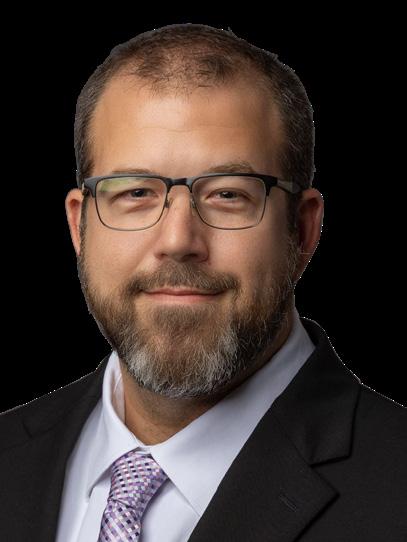
For more information, or to take a GAL case, please contact Sam Williams at swilliams@legalaidocba.org For more information on how to become a financial donor or help with fundraising efforts, please contact Donna Haynes at dhaynes@legalaidocba.org or 407-515-1850.
JUDICIAL REVIEW/ PERMANENCY HEARING
What are they and what to expect.
If there ever was a good reason to have court hearings at least every six months for the entirety of a court case, a child’s wellbeing should be at the top of everyone’s list. As a Guardian ad Litem (“GAL”), you will attend several Judicial Review/Permanency hearings over the lifespan of a dependency case. These hearings get into the weeds of the dependency case and ensure that the necessary moves are made to establish timely permanency for a child.
of Children and Families (“DCF”) has made reasonable efforts to achieve the permanency plan currently in effect. For example, making reasonable efforts is having fully funded referrals in place for the parents’ case plan services.
Judicial Review (“JR”) hearings review the status of the case at least every six months until the child reaches permanency. The JR assesses the parents’ case plan compliance and whether the child is receiving proper care in a suitable placement. The court will make a ruling on the parents’ compliance and whether conditions for return have been met. The initial JR must occur within ninety days of the date of the disposition hearing. Every subsequent JR must occur at least every six months from the previous JR and will often be combined with a Permanency hearing. A JR is framed based upon age: (1) children under sixteen, (2) children sixteen to seventeen, and (3) young adults
over eighteen who remain in foster care.
Permanency hearings must occur within twelve months of a child being removed from their home. The point of a permanency hearing is to determine if a child’s current permanency goal remains suitable and in their best interest, or if the court should consider changing the goal. There are five permanency goals available under Chapter 39, Florida Statutes: (a) reunification, (b) adoption, (c) permanent guardianship, (d) permanent placement with a relative or (e) another planned permanent living arrangement (for youth sixteen and older and expected to reach eighteen years old in care). The court will make a finding whether the Department
The stage for the Judicial Review is set by the Judicial Review Social Study Report (“JRSSR”). Under section 39�701(2)(b)(1), Florida Statutes, the department and lead care agency are required to file a JRSSR within seventy-two hours of the hearing. The JRSSR contains information regarding any significant changes to the case, the efforts by the parents to comply with their assigned case plan tasks including recommended compliance findings, and information for the child regarding education, visitation, and placement. The JRSSR must include a recommendation for the permanency goal and information regarding the lead agency’s efforts with achieving permanency.
The hearing will begin with the DCF attorney giving a recitation of the information contained within the JRSSR, starting with
26 I The Briefs I MAY 2024 LEGAL AID SOCIETY: WHAT WE DO
Sam Williams, Esq. OCBA Member Since 2022
significant changes since the last JR, the parents’ case plan compliance and the reason for the findings. The compliance finding will be based upon engagement with the assigned tasks from the parents’ case plan. The court will make a finding based upon the information from the JRSSR, along with testimony from the GAL, the social services agency, the parents, the caregiver, and any other relevant and material information submitted to the court. When there is a Termination of Parental Rights petition filed, there will be
no compliance findings. If the department is seeking a permanency goal change, they will express it during their recitation, at which point the GAL will weigh in. The parents will often introduce information such as a lease, therapist reports, or certificates for completing a program. This can change the level of compliance with the case plan. Parents can also request expanded visitation or a home study. However, a home study is not likely to be positive without a finding of substantial compliance with the case plan.
After DCF and the parents have addressed the court, it is the GALs turn. Topics that we often address as GALs include providing an update on the child’s wellbeing in their current placement, addressing any outstanding medical, developmental or educational needs, whether the caregiver has the child’s vital documents, whether sibling visits are occurring, and ensuring any recommended services, such as speech therapy or counseling, are in place. For older children, the primary concern should be addressing
and ensuring they are receiving services designed to prepare them for life after reaching 18. To prepare for the JR hearing, as a GAL, you should visit and maintain regular contact with the child and caregiver, communicate with the case manager, and review the JRSSR report.
Ultimately, the JR/Permanency hearing is the checkpoint for a dependency case where you will refine the trajectory of the case and ensure that a child is not languishing in care without the proper services in place.
Improve productivity with LEAP.
• Save time starting matters with Recurring Matter Templates.
• Unlock automation by entering details once that pre-populates across matters.
• Access a library of automated, up-to-date, court and government forms.
• Draft all documents and letters directly in LEAP.
• Automate firm-specific documents that are standardized and personalized.
orangecountybar.org I The Briefs I 27
Discover the LEAP advantage today. leap.us/essentials Retainer Agreement Letter to Thomas Jones Attorney PC 150017 Penfold, Divorce - Contested; Penfold Details & Correspondence Calendar & Tasks Financial Summary Time & Fees Operating Accounting Trust Funds Safe Custody Plaintiff Mrs. Sally Penfold Family role Wife Employer American Broadcasting Company, Inc. Family role Husband Matter type Divorce - Contested Defendant Mr. Paul Penfold DETAILS 150017 James Stevenson, Samantha Breslin TRIAL DATE CORRESPONDENCE TYPE ITEM Search correspondence Plaintiff Defendant’s attorney Matrimonial Retainer Agreement Letter to Mr. Paul Penfold Letter to Mrs. Sally Penfold Letter to Mrs. Sally Penfold Correspondence Employer details Plaintiff’s Current Employer Save & Close Matter LawConnect Microsoft Teams Mobile New Correspondence Import New Document New Email Forms & Templates New Comment Share eSignature Message Time & Fees Timesheet Send Matter Send Document Callback Request
 Staci Sciandra, Esq. OCBA Member Since 2021
Staci Sciandra, Esq. OCBA Member Since 2021
For more information, please contact Staci D. Sciandra at sdsciandra@legalaidocba.org
For more information on how to become a financial donor or help with our fundraising efforts, please contact Donna Haynes, Development Director, at dhaynes@legalaidocba.org
TRANSITION PLAN
Why a Transition Plan Matters in a Chapter 751 Temporary Custody Matter?
Caregivers initiate Chapter 751 Temporary Custody matters (hereinafter referred as Ch.751) for any number of reasons. Commonly, the petitioner is seeking temporary custody of a child due to death, mental illness, homelessness, substance abuse, or imprisonment of one or both of the child’s legal parents. Attorney Bartley Vickers tells clients, “That a Ch.751 helps with registering the kids for school, after school activities, getting health insurance or medical treatment, if needed, and even getting a passport.”
A Ch.751 does not terminate the legal parent’s rights. This is because the petitioner hopes that the legal parent(s) will again one day be able to care for and provide a stable environment for their child. The law changed a couple of years ago to allow for transition plans in these matters. Section 751�05(4) (b), Florida Statutes, states, “Temporary custody of the minor child to the petitioner may include provisions requested in the petition which are related to the best interest of the child, including a reasonable transition plan that provides for a return of custody back to the parent or parents, and may also grant visitation rights to the child’s parent or parents, if
it is in the best interest of the child.” When consenting to a temporary custody petition that contains a transition plan, the parent consents to that proposed transition plan.
Think of a transition plan as a safety net for the petitioner and minor child. If there is no transition plan put in place, then a parent could come at any moment and request the return of the child. Nothing would stop the court from granting the parent return of custody of their minor child. That parent could still be facing the same hardships that they were facing when the petitioner was granted temporary custody. This could lead to the child facing neglect, abandonment, or abuse. For ex-
ample, if a parent is mentally ill, has a substance abuse problem, and is homeless, it is in the best interest of the child that the petitioner maintains temporary custody. With no transition plan in place, that parent could be having a good day or week and feeling like they are getting back on track to having a stable environment. Thus, they request for return of custody. However, if the following week that parent stops taking their medications, relapses into substance abuse, and no longer has that safe and stable environment for their child that they thought they had. Now, the petitioner might be forced to contact DCF, and the child might become subject to the dependency system. A transition plan would stop this from happening.
A transition plan would create parameters that the parent must first reach before they can be granted physical custody of their child. Continuing with the example above, for the parent to be able to request to terminate the temporary custody order, the parent must show for a period of time that the parent is mentally stable and is actively participating in mental health treatment, recovered from alcoholism and/or substance abuse addiction, has a sta-

28 I The Briefs I MAY 2024
LEGAL AID SOCIETY: WHAT WE DO

ble source of income, and a safe and stable home environment. No two families are alike. Thus, transition plans vary based on each case and circumstances. Having a transition plan helps guarantee that the child’s best interests are being met. This is not to say that a transition plan will always stop that. However, it can significantly cut down on the possibility of DCF intervention for a parent who thinks they are able to care for their child when in reality they are not yet ready. It is sim-
ply an extra step to helping ensure that the child’s best interests are placed first. Every case does not require a transition plan. If you are handling a pro bono case for our office, please feel free to contact us to discuss whether your client can benefit from a transition plan. Attorney Vickers encourages everyone to get involved with LAS and help with Ch.751 matters or other cases, considering it not only a commendable action but also a duty for attorneys given their advantages.
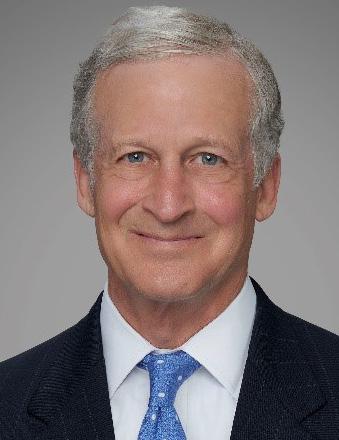 Frank Bedell fbedell@uww-adr.com
Frank Bedell fbedell@uww-adr.com
» Commercial trial lawyer and veteran dispute resolution practitioner with more than 35 years of experience.
» Federal Court and Florida Supreme Court Certified Circuit Civil Mediator.
» Practicing in these and other areas: Breach of Contract Claims, General Civil Litigation, Commercial Litigation, Personal Injury, Real Estate Disputes, Theft of Trade Secrets and Non-Compete Claims, Professional Negligence Claims and Probate and Trust Disputes.





orangecountybar.org I The Briefs I 29
BrownImmLaw.com 407.753.4469 For complex immigration matters made simple, this is where you want to linkedin.com/company/upchurch-watson-white-&-max Upchurch Watson White & Max MEDIATION GROUP
welcomes Frank M.
its
proudly
Bedell to
distinguished panel.
MEDIATION | ARBITRATION | E-DISCOVERY | SPECIAL MASTERS CALL TOLL FREE: 800-863-1462 READ MORE & SCHEDULE: WWW.UWW-ADR.COM
SIDEBAR
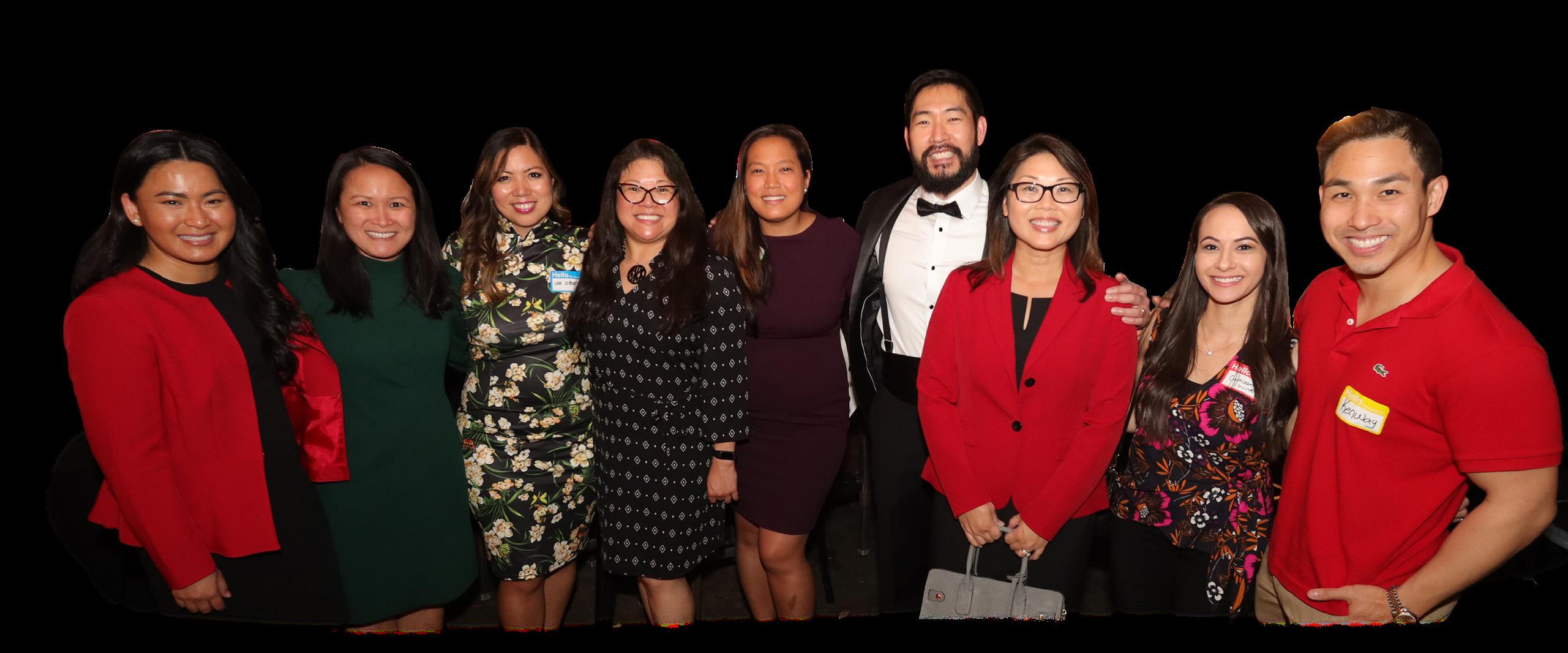
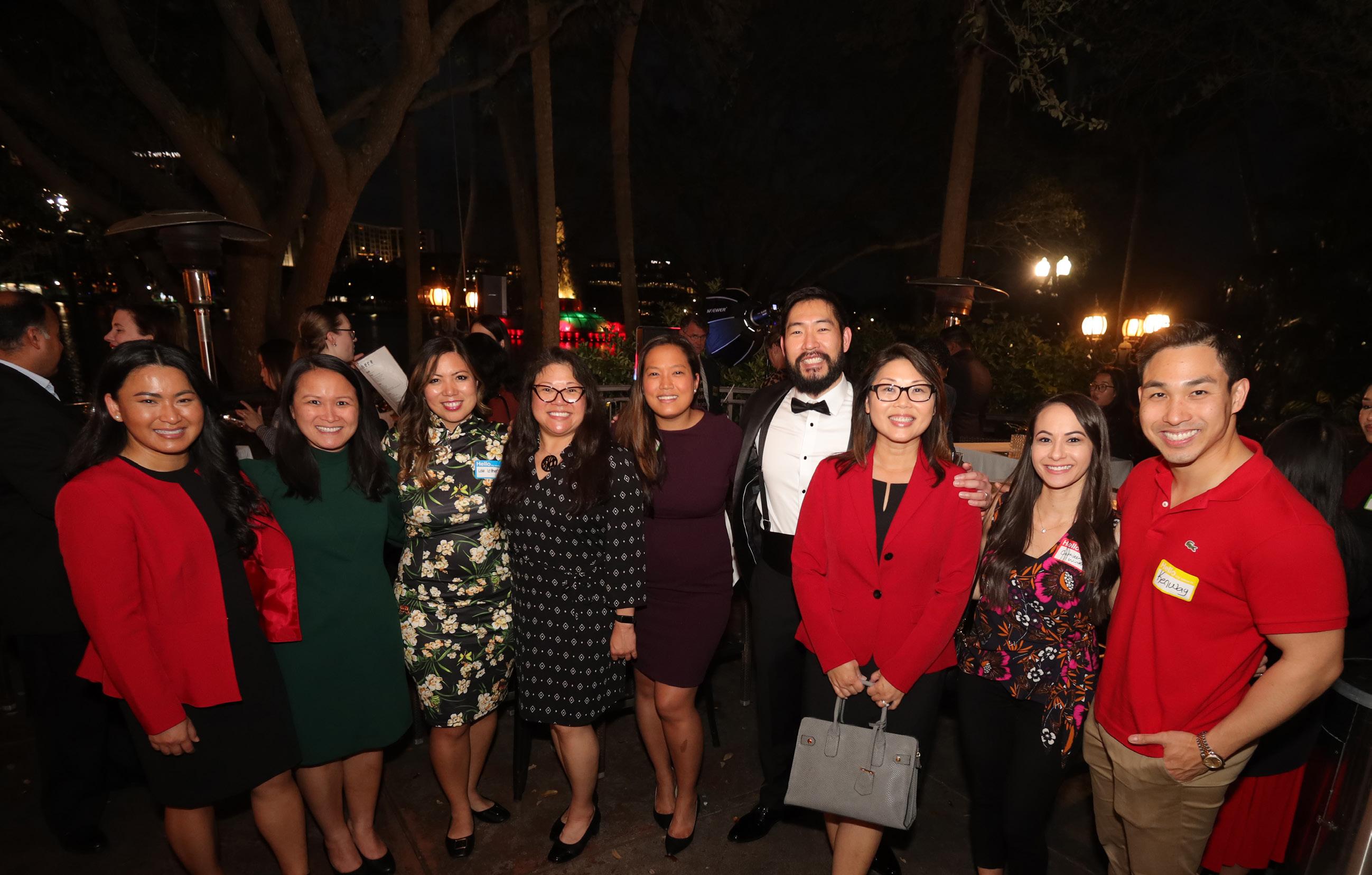
WHO’S WHO
1 GOAABA past and current presidents. Left to Right: Onchantho Am, Kim Gray, Leia Leitner, Jessica Hew, Vanessa Braga, David Yau, Lisa Gong-Guerrero, Cathleen Winter, Kenway Wong
2 GOAABA Board posing with Orange County Mayor, Jerry Demings. Left to right: Andrew Reath, Orange County Mayor Jerry Demings, Avita Samaroo, XiXi Li, David Yau, Jacqueline Gardner, Jimmy Pham
3 Mary Ingram Walter, Lauren Millcarek, The Honorable Celia Dorn, Nequosha Anderson, Nicolette Kramer, Jamie Moses, Arti Hirani
4 CFAWL and Federal Bar Association Fierce, Fearless and Female: Navigating Success in the Law luncheon
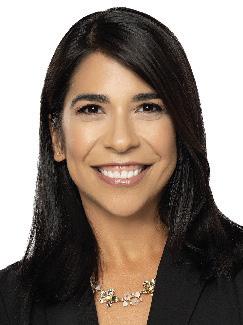
Alena V. Baker, Esq., of Alena Baker Criminal Defense, P.A., is a solo practitioner who practices primarily in the area of criminal law throughout Central Florida. She has been a member of the OCBA since 2011 and is a board member of the Criminal Law Committee of the OCBA.
VOLUNTARY BAR
Lunar New Year Celebration
The Greater Orlando Asian American Bar Association (GOAABA) FEBRUARY 28, 2024 / the Greater Orlando Asian American Bar Association (GOAABA) hosted its Lunar New Year Celebration at Osphere Neighborhood Grill and Bar.
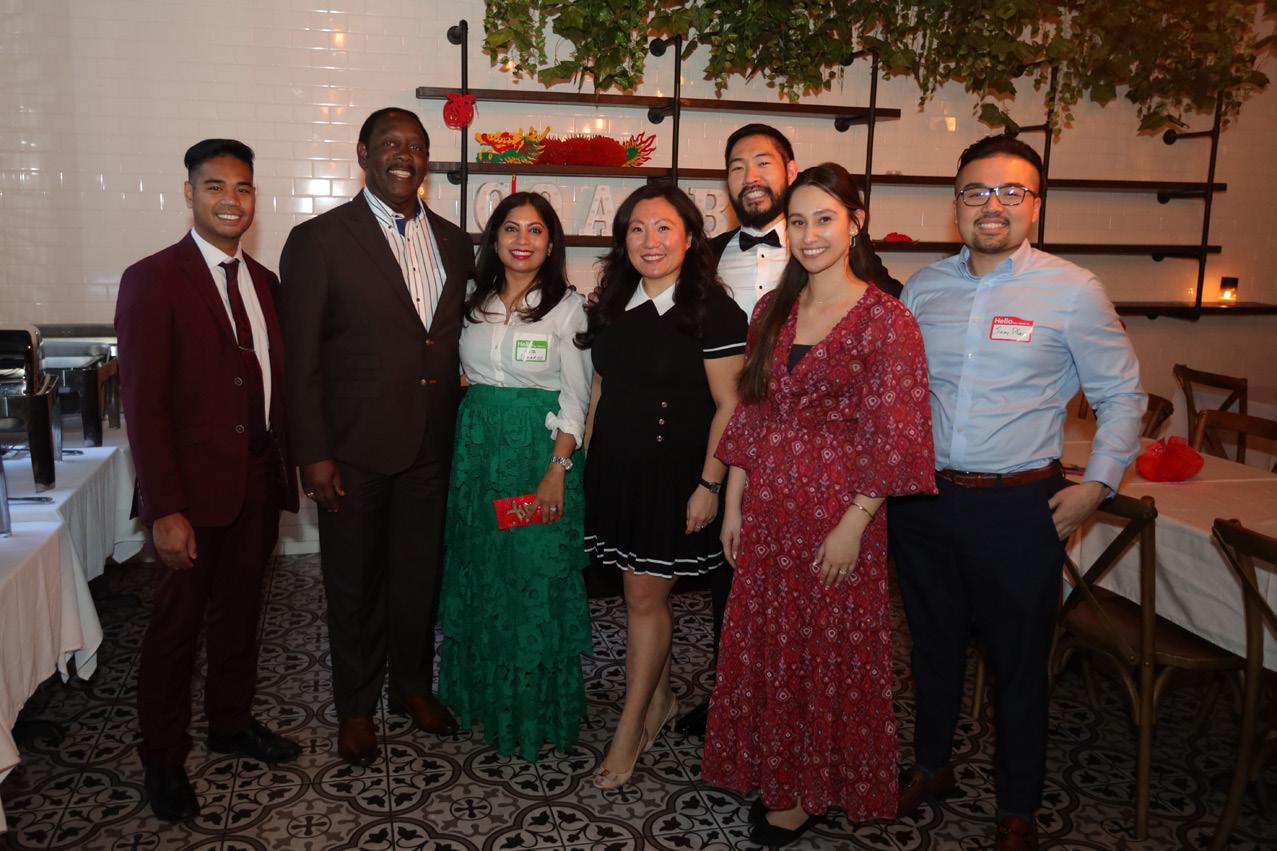
30 I The Briefs I MAY 2024 1
2 NEWS / EVENTS / UPDATES

International Women’s Day Luncheon
Central Florida Association for Female Lawyers (CFAWL)
ON INTERNATIONAL WOMEN’S DAY (MARCH 8, 2024) / the Central Florida Association for Female Lawyers (CFAWL) co hosted a luncheon with the Orange County Bar Association’s Young Lawyer Division which featured the Honorable Tiffany Geyer, The Honorable Grace E. Robson, and the Honorable Lori V. Vaughan.
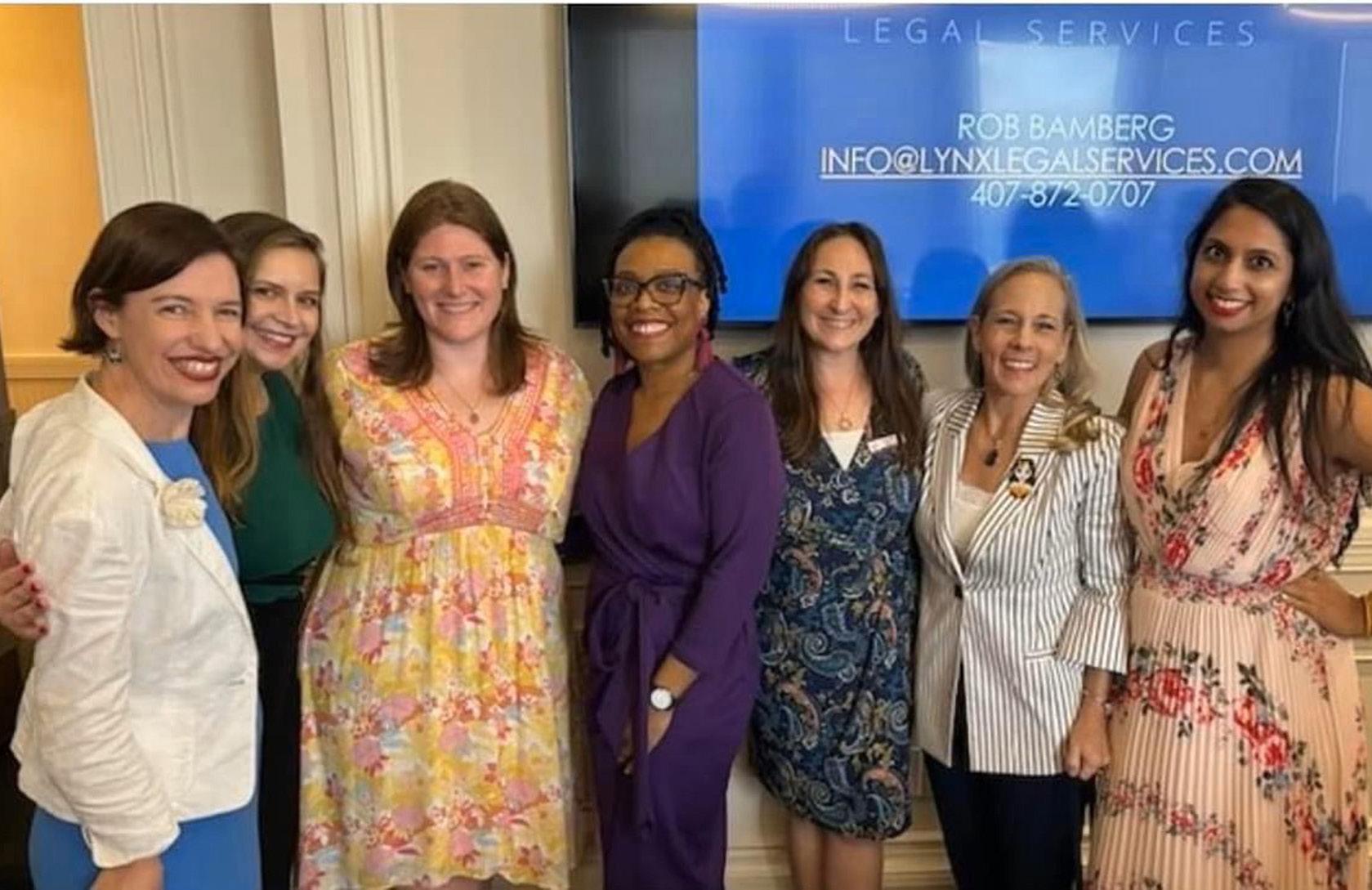
3
This luncheon was also very special as CFAWL members in attendance were able to vote for their new president. As such, CFAWL would like to congratulate their new president elect, Nicolette Anderson and wish her all the best as she prepares for an amazing year ahead.
THEN ON MARCH 14, 2024 / CFAWL teamed up with the Federal Bar Association to present a luncheon titled “Fierce, Fearless and Female: Navigating Success in the Law”. This amazing panel featured The Honorable Grace Robson, Jaimie Billotte Moses, Jenna Kelly, and Ava Doppelt and was moderated by Erin Sales. 4

Even Very Good Lawyers Get Sued.
orangecountybar.org I The Briefs I 31
HP AD
*Dividends are paid at the sole discretion of the Company’s Board of Directors. A past dividend does not guarantee the payment or amount of future dividends. All features and benefits subject to policy terms and conditions.
That’s why the best lawyers carry the best insurance. Get protection you can count on with lawyers’ professional liability insurance from Florida Lawyers Mutual. AN INSURANCE EXPERIENCE CREATED FOR FLORIDA LAWYERS Created by The Florida Bar Owned by our member lawyers Solo & small firms welcome Declared consecutive annual dividends to qualifying members in 2022 and 2023* Admitted carrier with over 30 years experience in the market Direct communication with our Florida-based Underwriters and Claims Specialists Simple & easy to apply online AM Best A Rating for our Excellent Financial Strength High retention rate — our members love what we provide, and we love them! YOUR MEMBER BENEFITS Exclusive FREE CLE library with over 33 hours of videos, including coveted credit types Cyber liability endorsement included on every policy at no cost to you Lawyer to Lawyer Hotline — call for confidential risk management guidance Premium credit for claims-free history and low-risk practice areas Premium discount for Florida Bar Board Certification Law practice tips, tools, and risk alerts Cyber Security Risk Management Resource Center Lawyer Well-Being Resource Center — tools to help you find health, happiness, and work-life alignment OUR POLICY FEATURES Supplemental Claims Expense Coverage Disciplinary Proceeding Coverage — pays defense costs for disciplinary matters involving the state bar Aggregate Deductible — you only pay one deductible, even if multiple claims arise during the same policy term Claim repair assistance to help you prevent a situation from becoming a claim No deductible for claims arising from pro bono work Trial attendance compensation Free two-year tail for retirement, death, and disability Relationship. Strength. Value. We’ve built our reputation on vigorously defending yours.® New: Get a quick premium indication with no obligation at www.flmic.com 407-537-5603 mailbox@flmic.com ARE YOU READY TO BE A STATISTIC?

YOUNG LAWYERS SECTION
Annual Pink Party
MARCH 28, 2024 / YLS Annual Pink Party – Taylor Swift Edition: On March 28, 2024, we celebrated in style at our Taylor Swift-themed Pink Party. The evening was filled with music, laughter, and an unparalleled sense of community as we channeled our inner pop stars.
OTHER YLS EVENTS
MARCH 23, 2024 / Estate Planning for Heroes: Beginning with a productive session on March 23, our estate planning attorneys worked diligently to draft Wills for our Heroes, using detailed questionnaires. This initiative continued successfully, culminating in a final day on April 13, where all documents were reviewed and executed, ensuring our Heroes’ legacies are secured.
APRIL 19, 2024 / YLS Joint Luncheon with GoAABA and PCPBA: We had the pleasure of hosting a luncheon alongside GoAABA and PCPBA, featuring the insightful and illustrious Brandon Sapp as our guest speaker. This event fostered meaningful dialogue and strengthened our collaborative efforts. Mayor Sapp’s professionalism has been an example for us all, and we were honored to have him speak to us.
APRIL 26, 2024 / YLS Book Fair at Washington Shores Elementary: Our visit to Washington Shores Elementary was a heartwarming experience. Sharing the joy of reading with the students and engaging them with a vast selection of books was a reminder of the impact we can make in our community.
SAVE THE DATE: 05/10/2024 / YLS Luncheon: Passing the Gavel to Jacob Schumer: We cordially invite you to join us for a very special YLS Luncheon. This event will not only celebrate the achievements of the past year but also mark the beginning of Jacob Schumer’s tenure. It’s an occasion to reflect on our collective accomplishments and to look forward with excitement to the future.
WHO’S WHO
1 Lauren Reynolds greeting attendees at the Pink Party
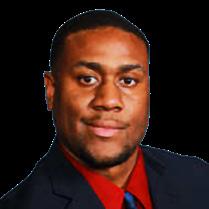
Sean MendezCatlin, Esq., is a founding partner of MC & J Law, PLLC, where he practices business and intellectual property law. He has been a member of OCBA since 2016.
FOLLOW US! @OCBAYLS #TogetherWeGoFar
STAY INFORMED:
To ensure you’re always up-to-date with YLS activities, please sign up for our weekly email blasts. Visit our website here and click “Sign Up for YLS Emails.”
100 Club
Firms with two or more attorneys who are all members can belong! If your firm is eligible, call the Membership Department (407-422-4551 x225)
20+ MEMBERS
Rumberger, Kirk & Caldwell
Shutts & Bowen
Wicker, Smith, O’Hara, et al.
Winderweedle, Haines, et al.
10-19 MEMBERS
Colling Gilbert Wright
Fisher Rushmer
Marshall, Dennehey, Warner, Coleman & Goggin
McDonald Toole Wiggins
Stovash, Case & Tingley
2-9 MEMBERS
The Aikin Family Law Group
Anderson & Ferrin
The Arnold Law Group
Artemis Family Law
Aust Law Firm
Barrister Law Firm
Barry Miller Law
The Brennan Law Firm
Carr Law Firm
Compass Law
Culbertson Law Group
Davey Law Group
Debra Wilkinson Botwin
DeCiccio & Johnson
Dellecker Wilson King
McKenna Ruffier & Sos
Divine & Estes
The Draves Law Firm
The Elder Law Center of Kirson & Fuller
Fassett, Anthony & Taylor
Flammia Elder Law Firm
The Fighter Law Firm
Forward Law Firm
Gasdick Stanton Early
GoodBlatt – Leo
Green Family Law
Haliczer Pettis & Schwamm
Harris Harris
Bauerle Lopez
Hilyard, Bogan & Palmer
Hornsby Law
Infocus Family Law Firm
Jill S. Schwartz & Assocs.
Keating & Schlitt
King, Blackwell, Zehnder & Wermuth
Korshak & Assoc.
Kosto & Rotella
Law Offices of Brent C. Miller
Law Offices of Horwitz & Citro
Law Office of Michael L. Dear Lebron Law
The Llabona Law Group
Marcus & Myers
The Marks Law Firm
McMichen, Cinami & Demps
McShane & McShane
Men’s Divorce Law Firm
Morgan, White-Davis & Martinez
Murphy & Berglund
N. Diane Holmes
O’Mara Law Group
Page & Eichenblatt
Perez LaSure
Rebecca L. Palmer
Law Group
Sawyer & Sawyer
Schwam-Wilcox & Assoc.
SeifertMiller
Shannin Law Firm
The Skambis Law Firm
Stovash, Case & Tingley
Tangel-Rodriguez & Assoc.
Warner & Warner
West Family Law Group
Wieland & DeLattre
Wilson McCoy
Wooten Kimbrough
Yergey & Yergey

32 I The Briefs I MAY 2024 SIDEBAR: NEWS / EVENTS / UPDATES
1








Local Solutions. Global Reach. Hire the creative team behind Em Agency is ready to bring the same creativity, style, expertise, and commitment to building your brand and marketing your business. We build brands we believe in. Maybe even a brand you believe in. hello@emagency.com logos • campaigns • websites • social media • video/photography POWERED
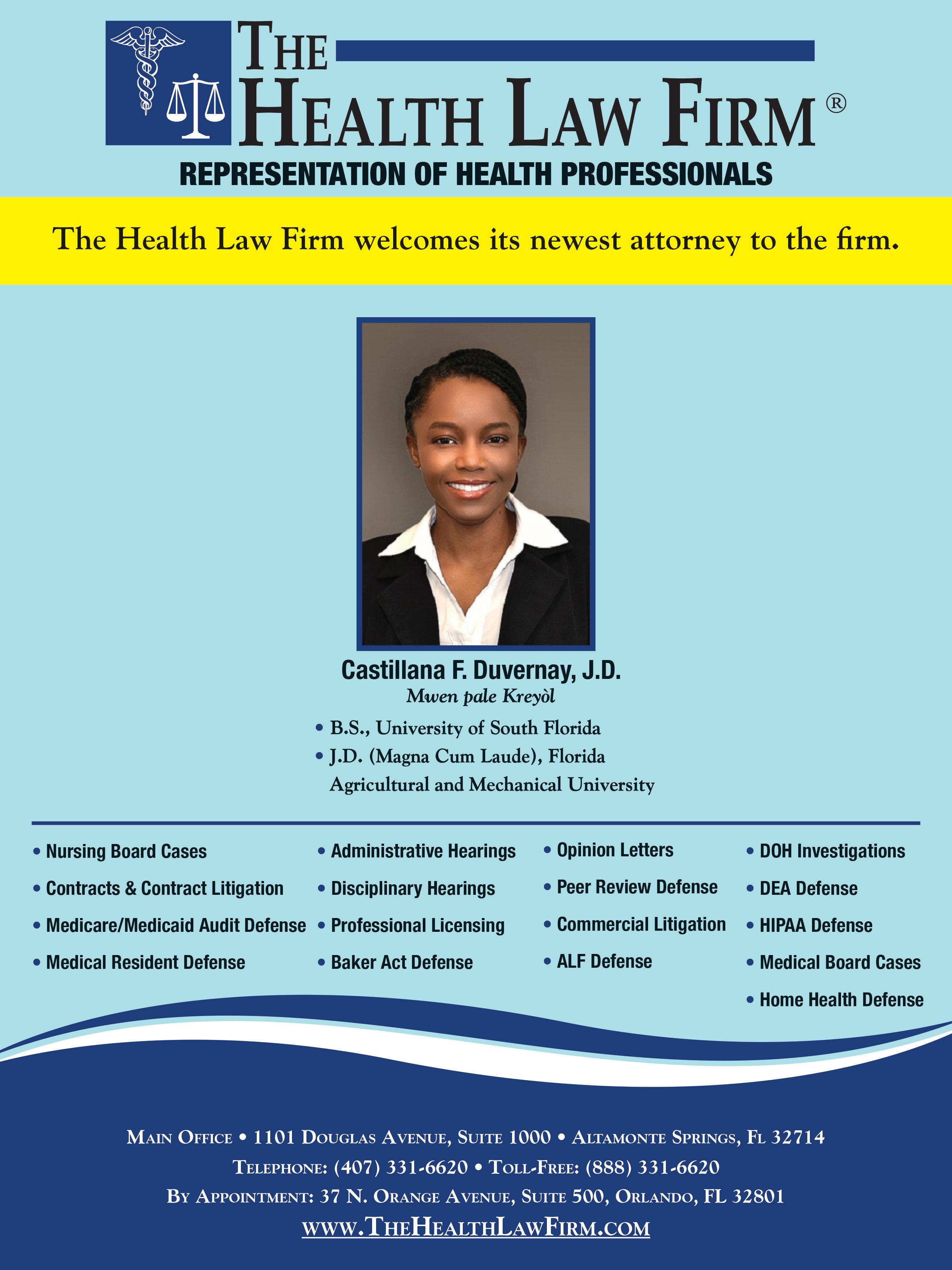

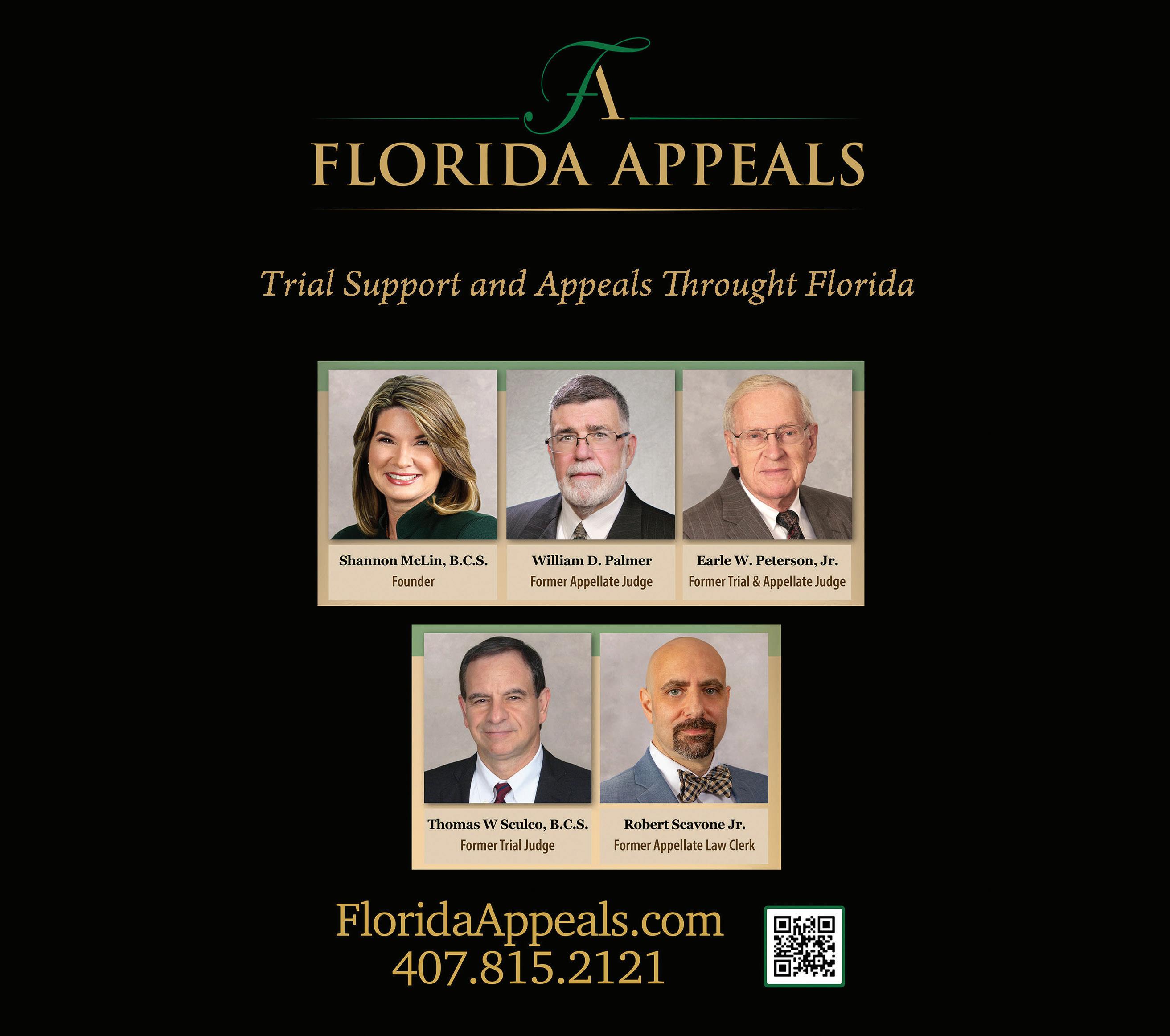
PRSRT STD U.S. POSTAGE PAID ORLANDO, FL PERMIT NO. 2530 880 North Orange Ave. Orlando, FL 32801
















 Tiffany Moore Russell Orange County Clerk of Courts
Tiffany Moore Russell Orange County Clerk of Courts



































 Staci Sciandra, Esq. OCBA Member Since 2021
Staci Sciandra, Esq. OCBA Member Since 2021

 Frank Bedell fbedell@uww-adr.com
Frank Bedell fbedell@uww-adr.com






















